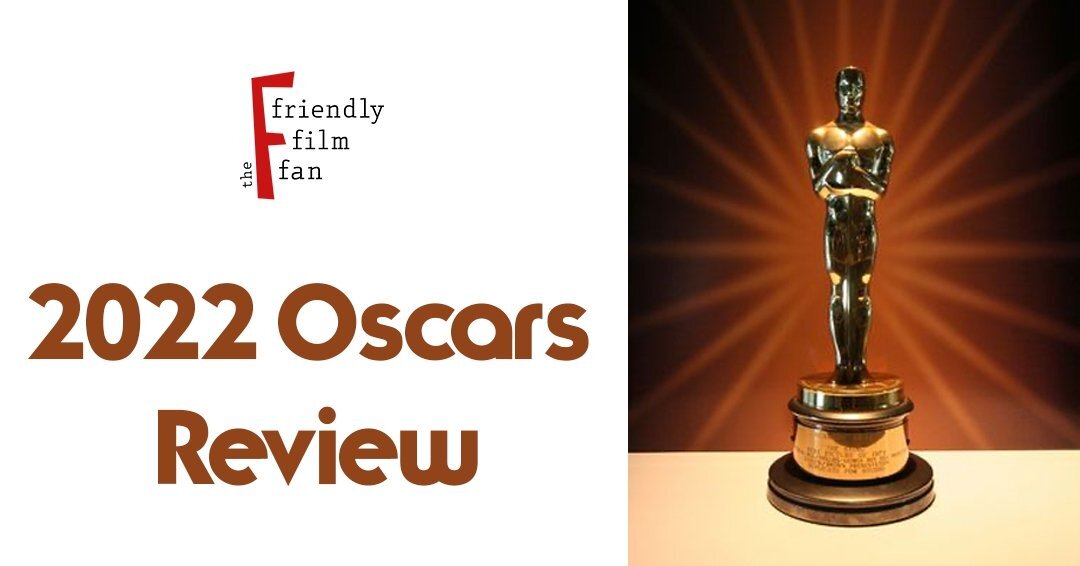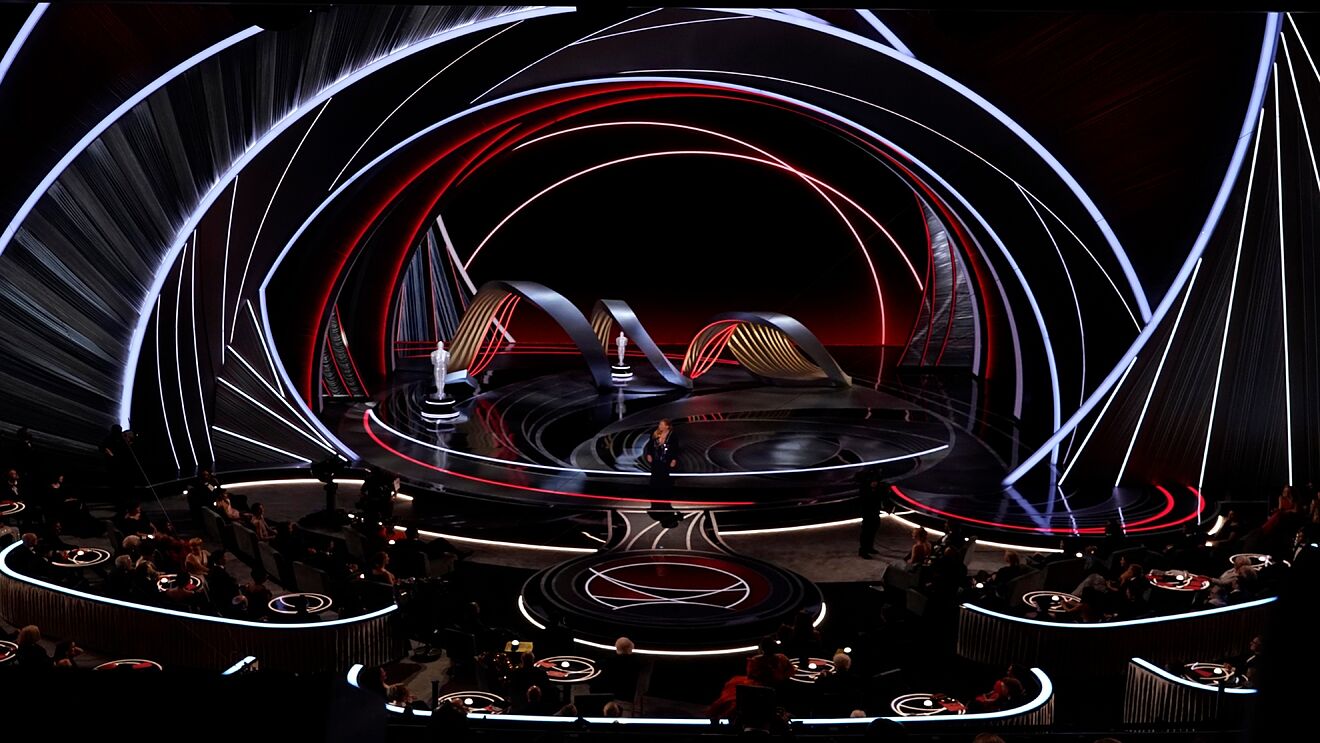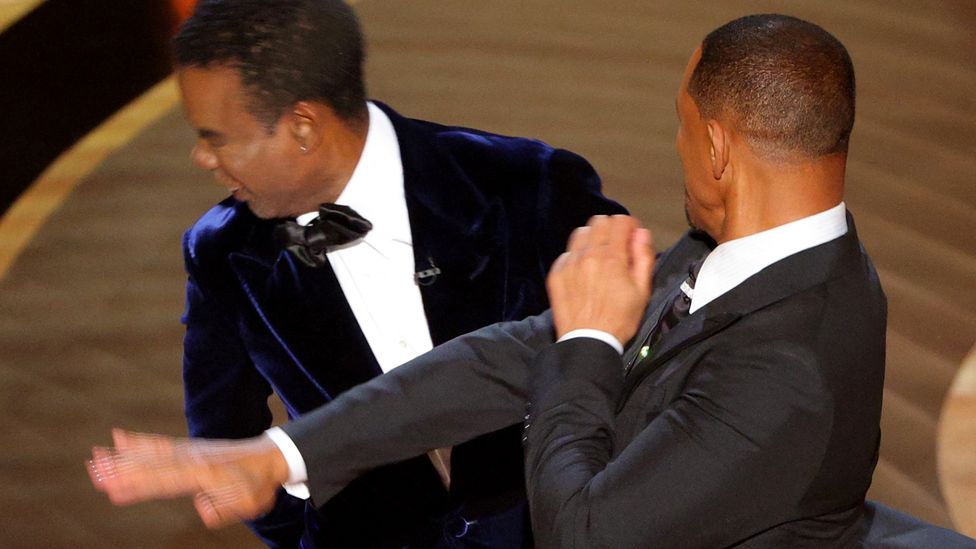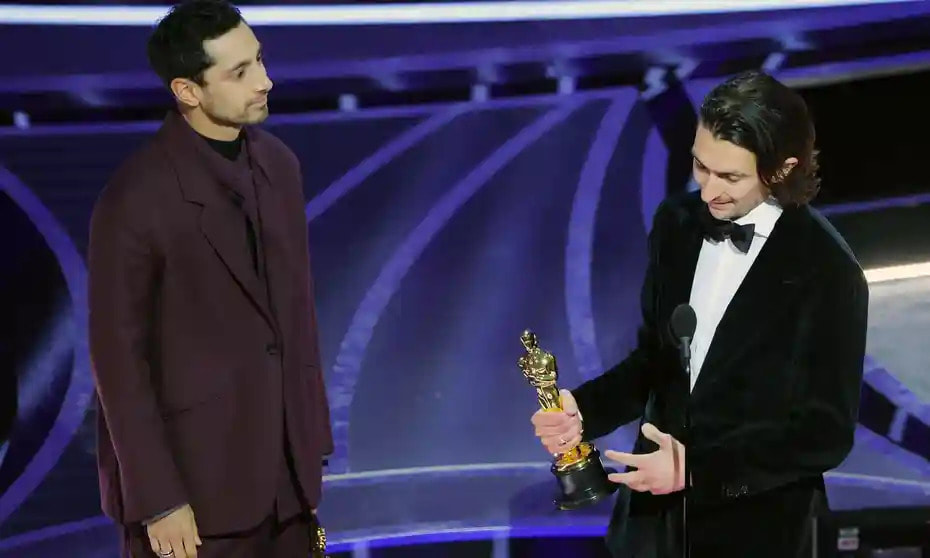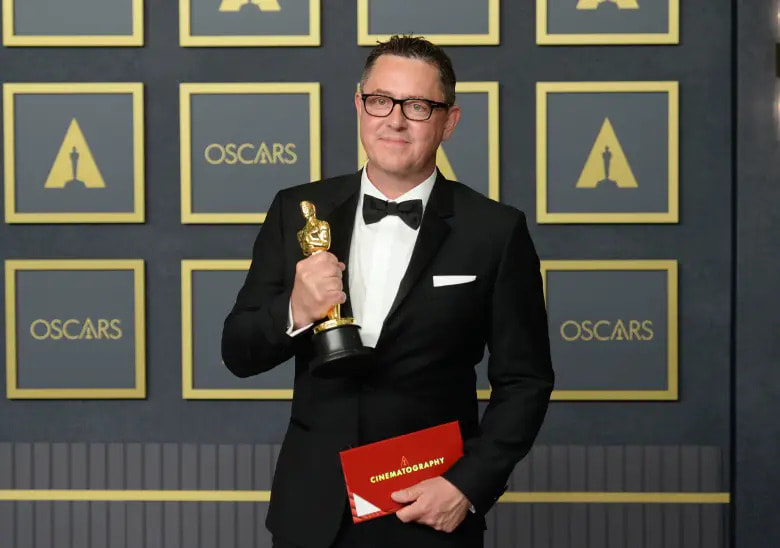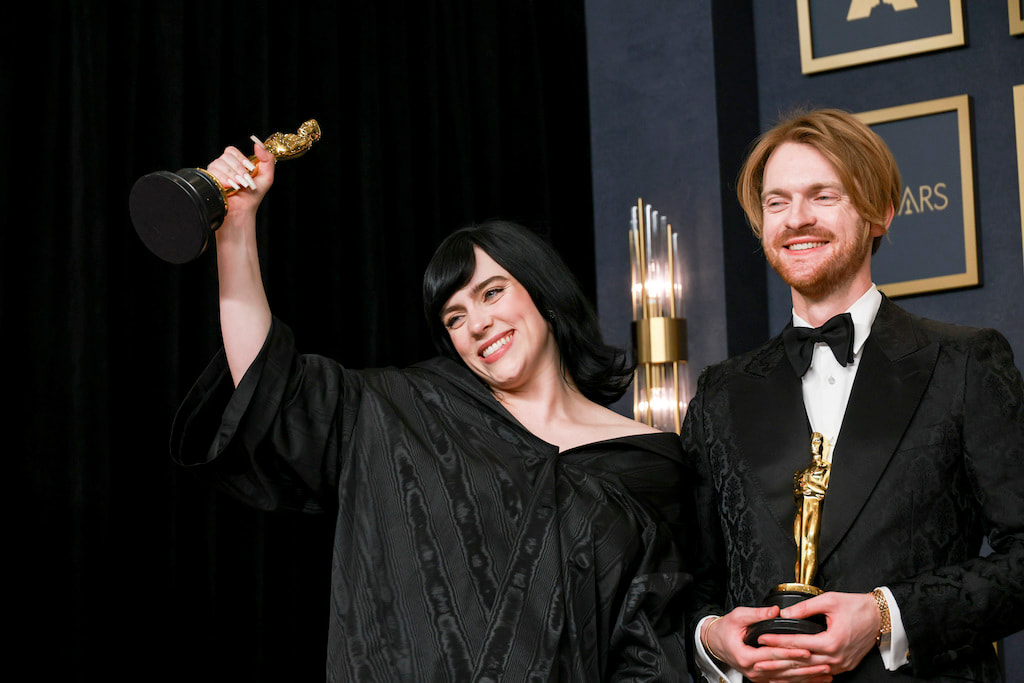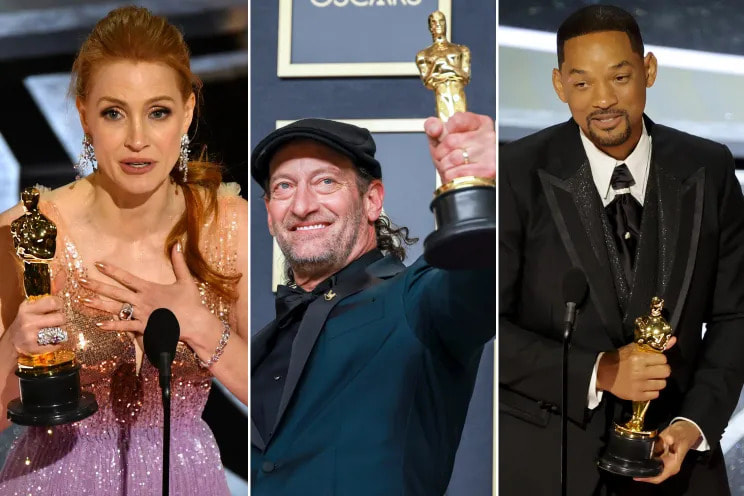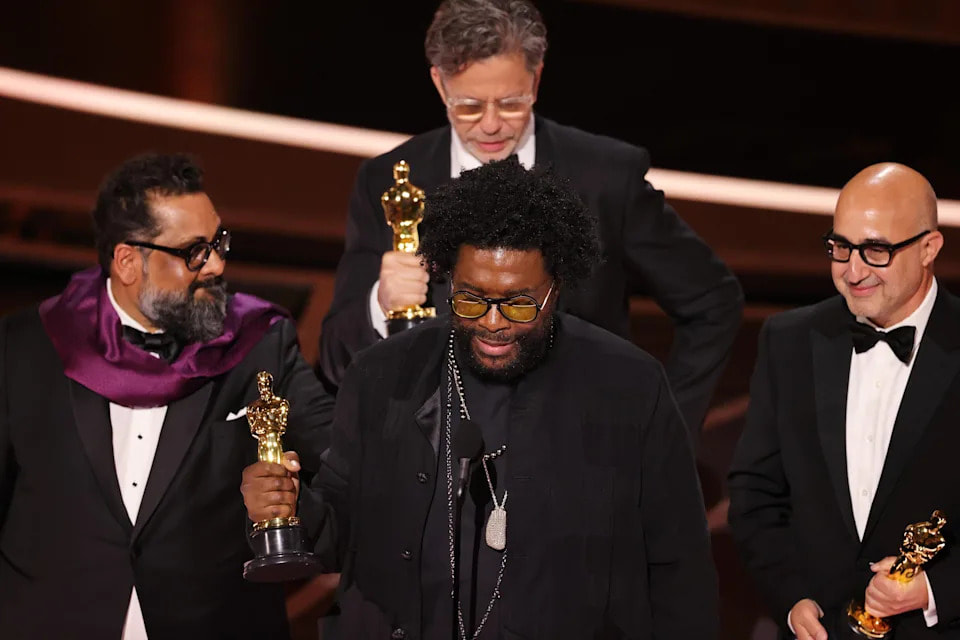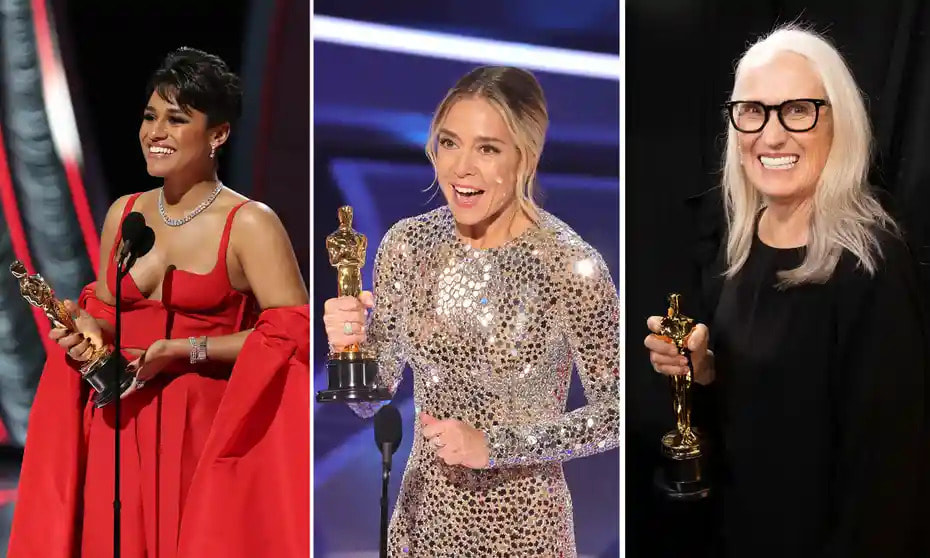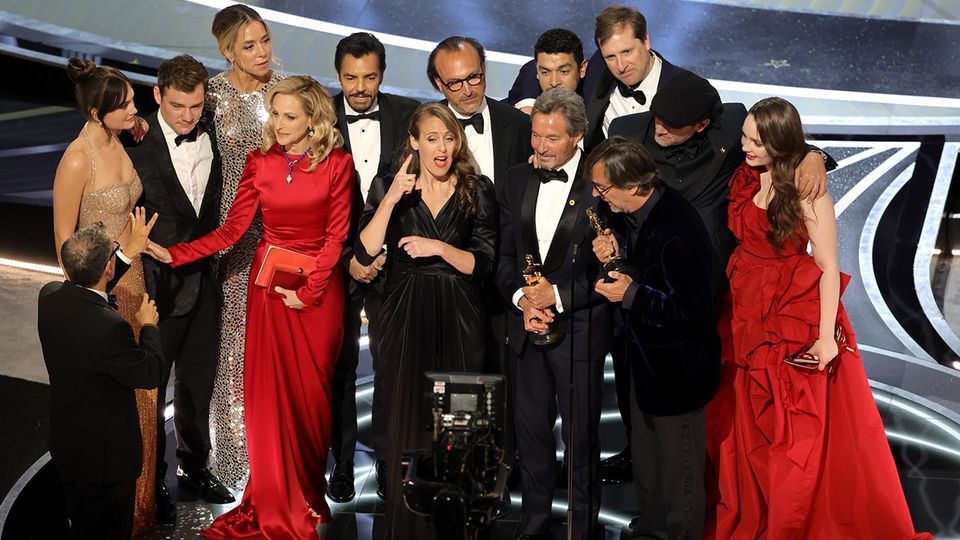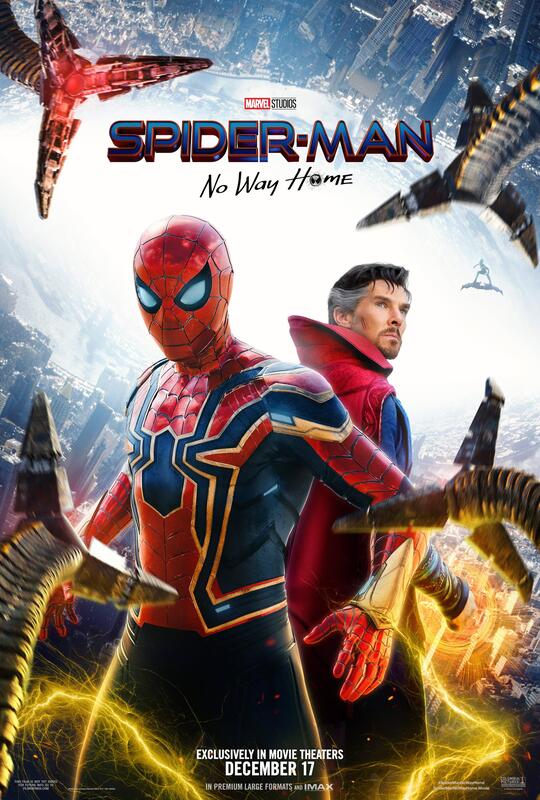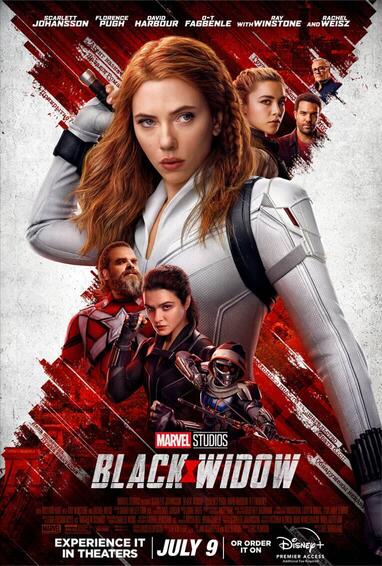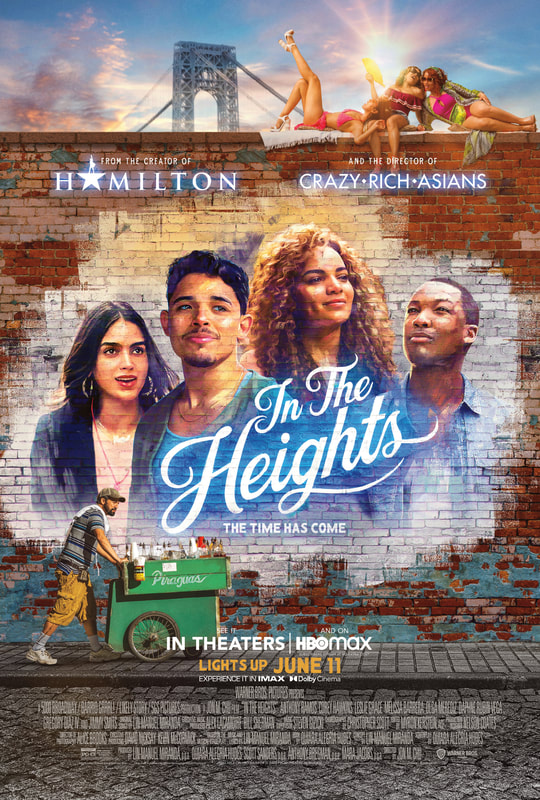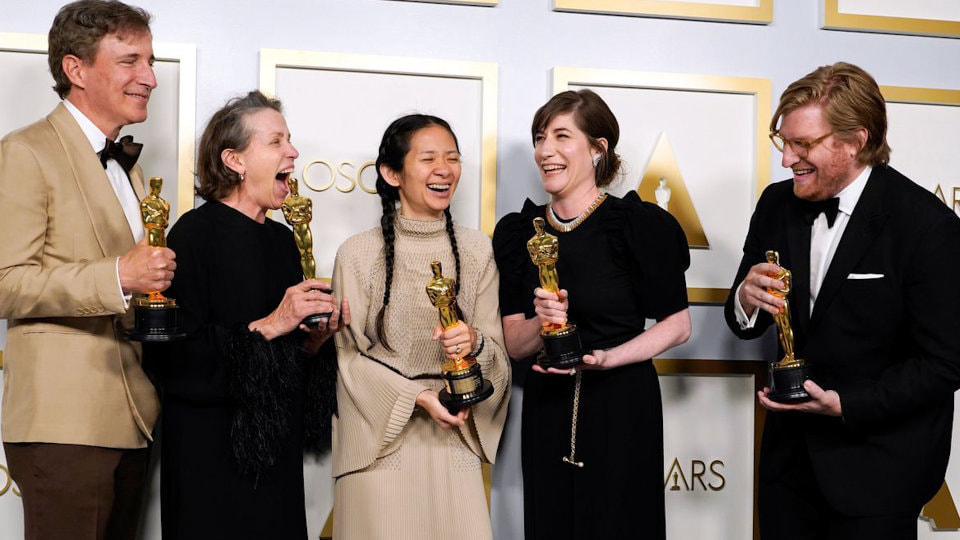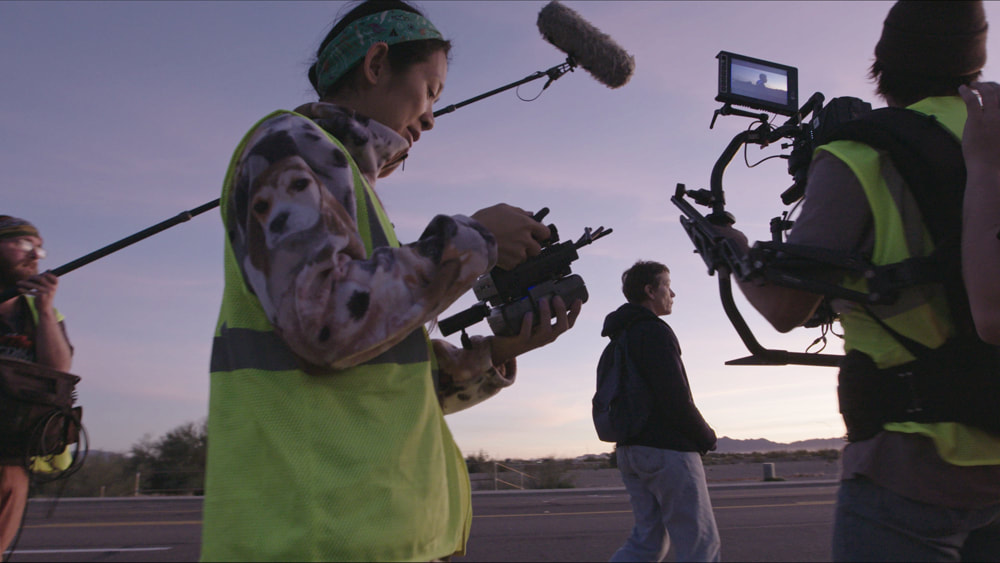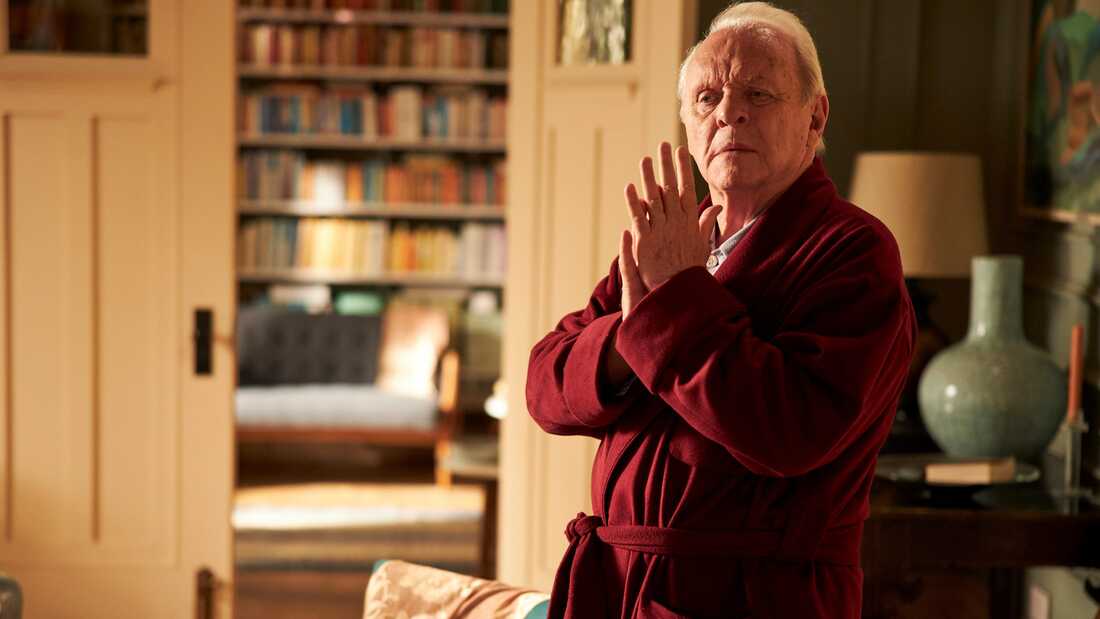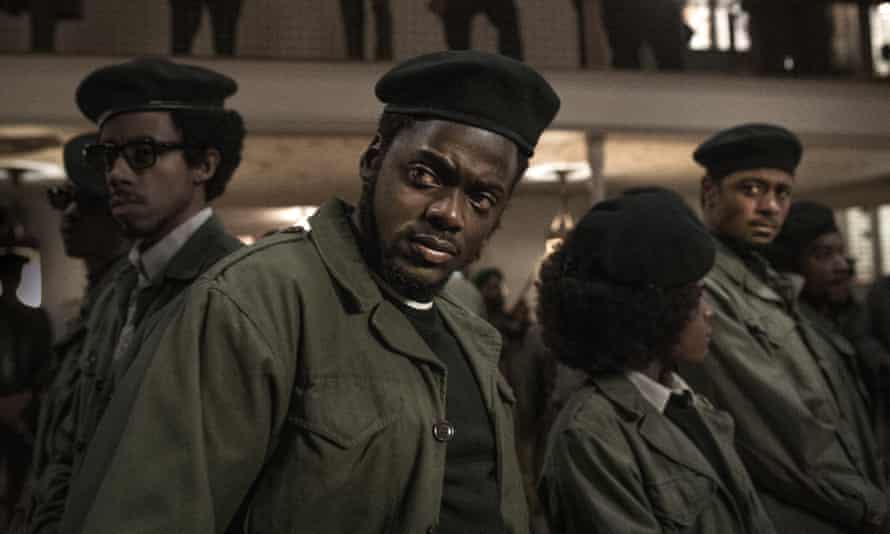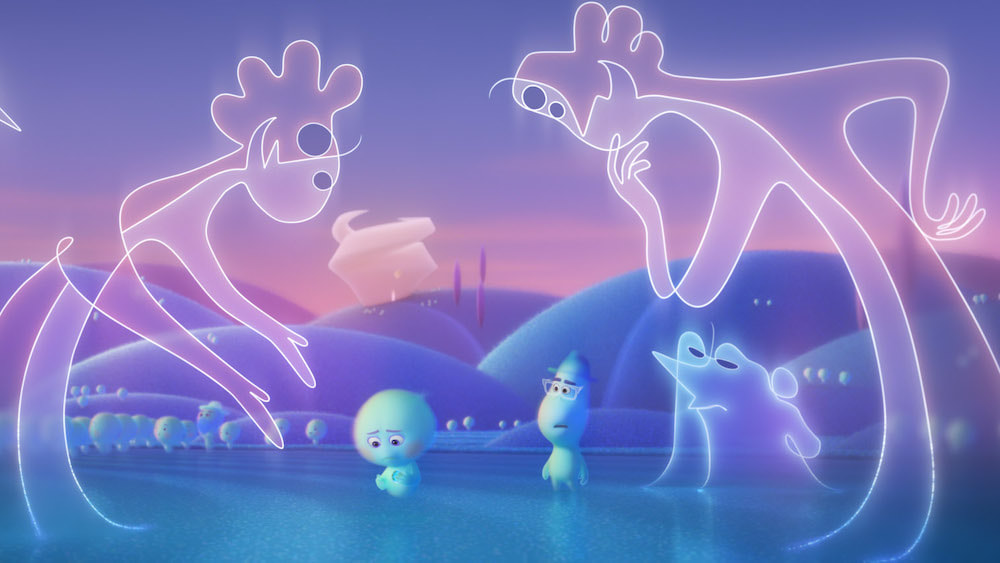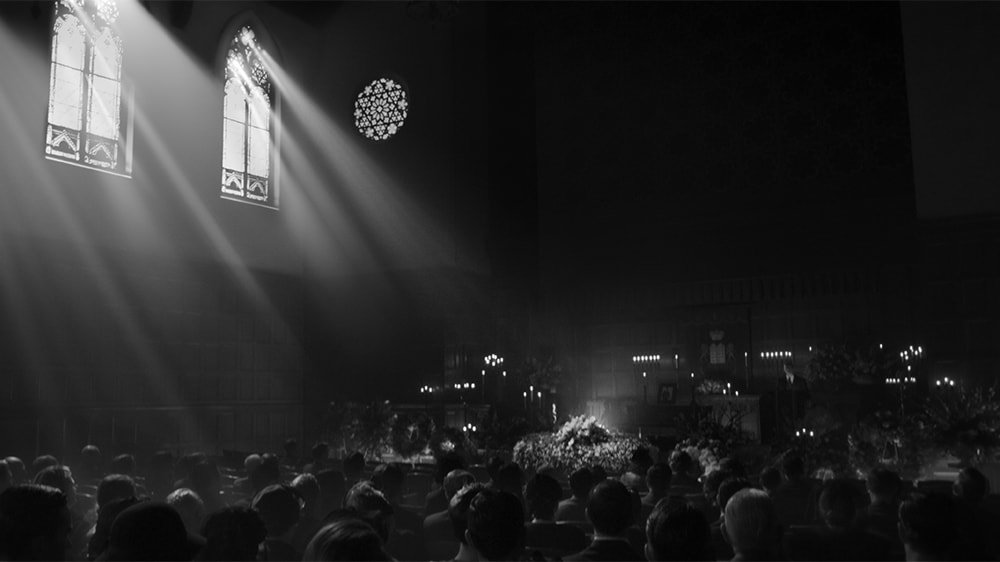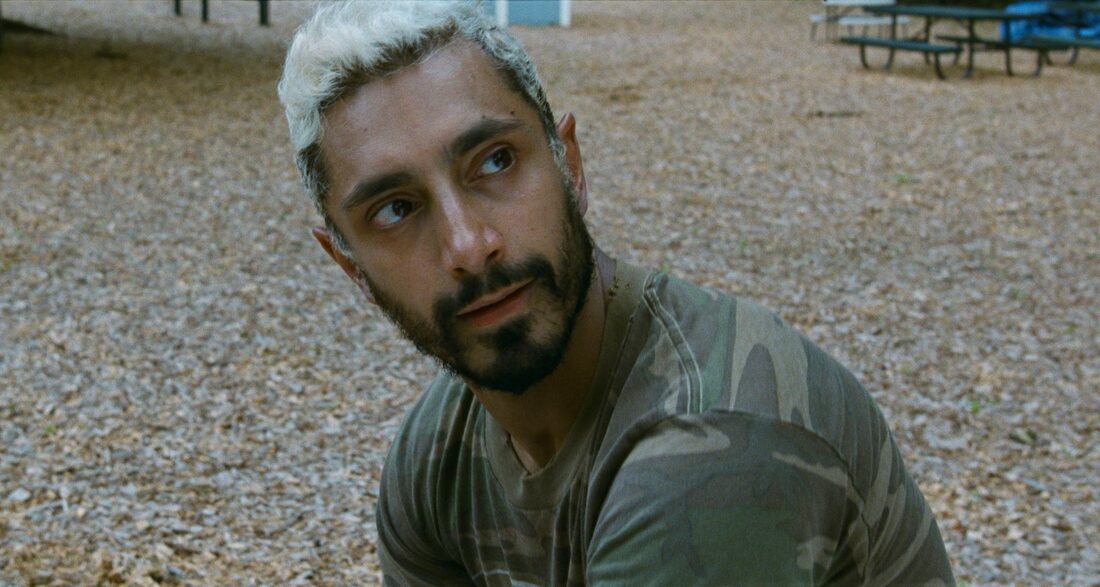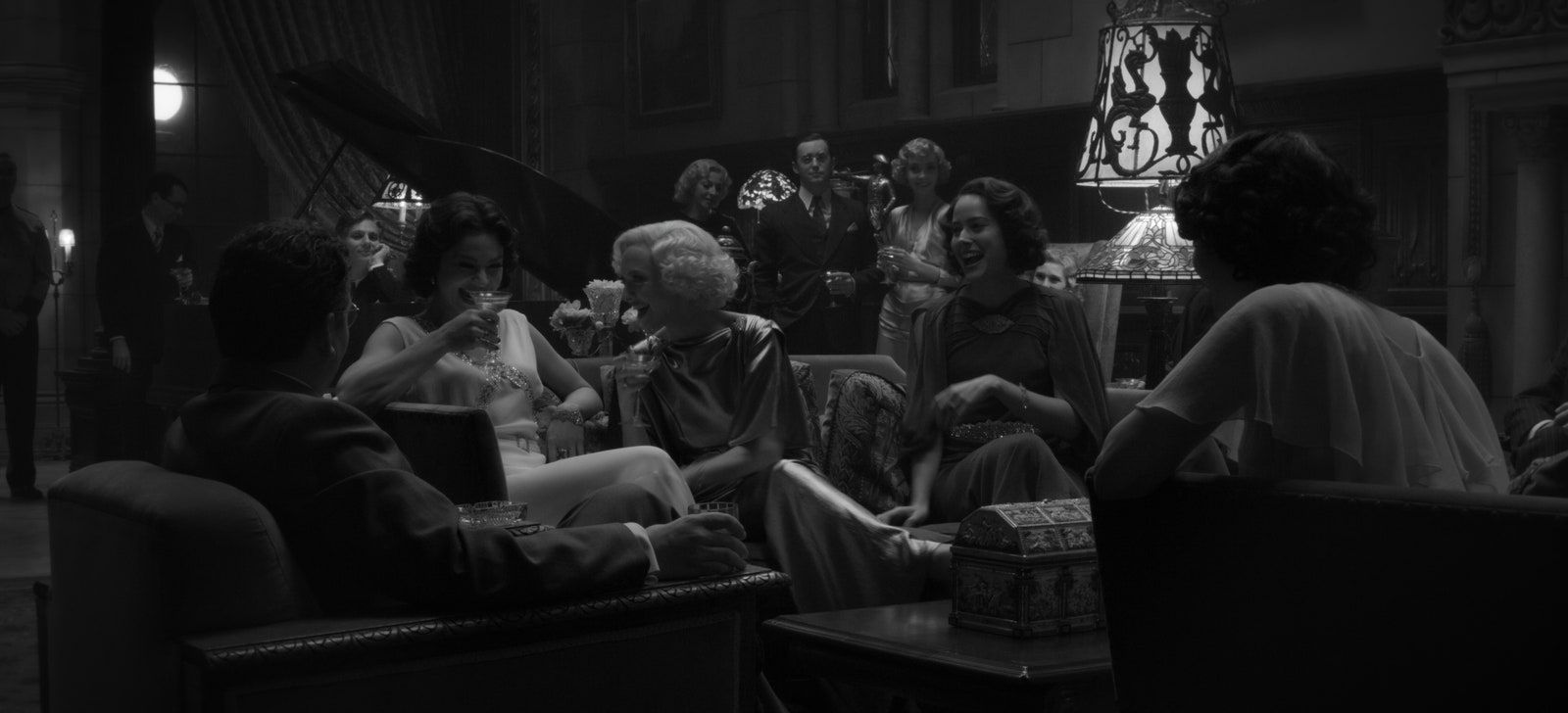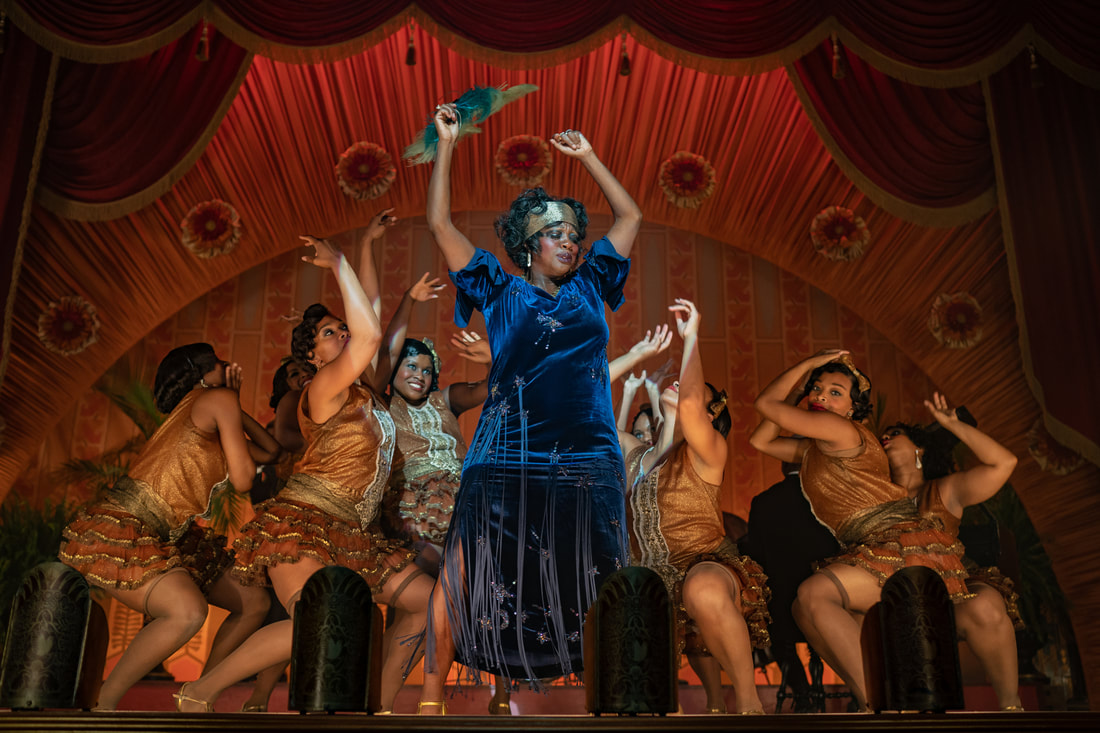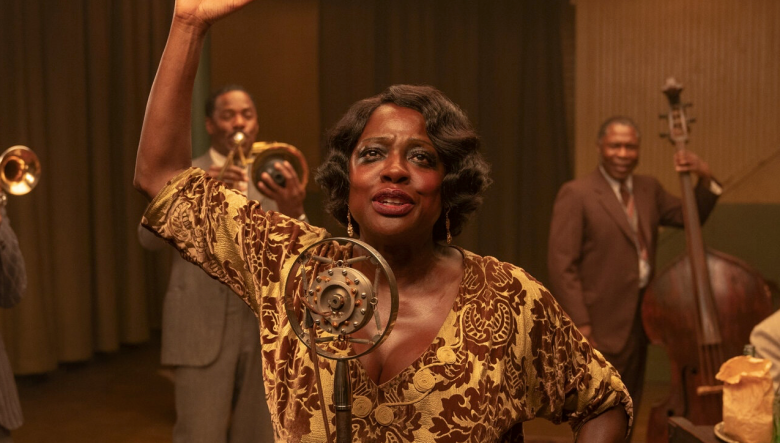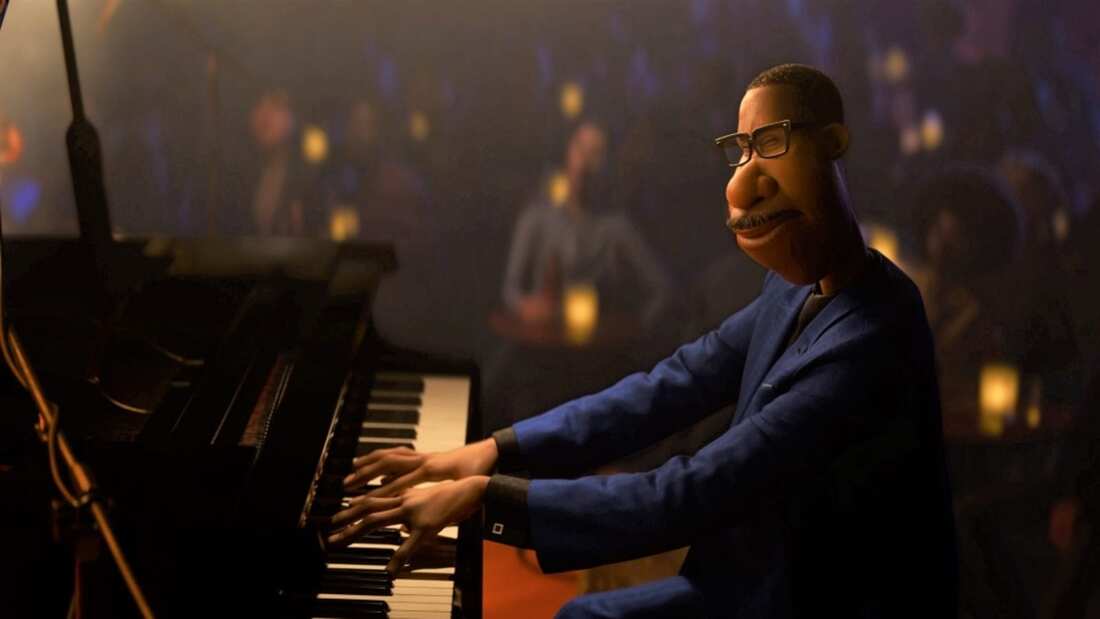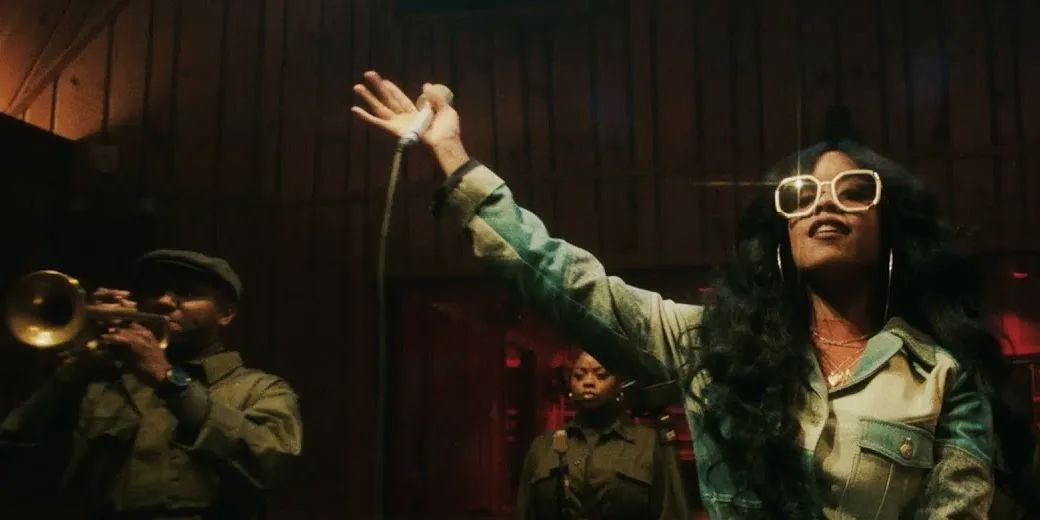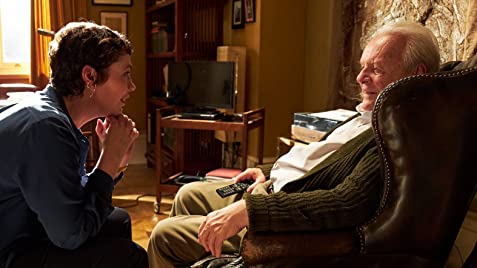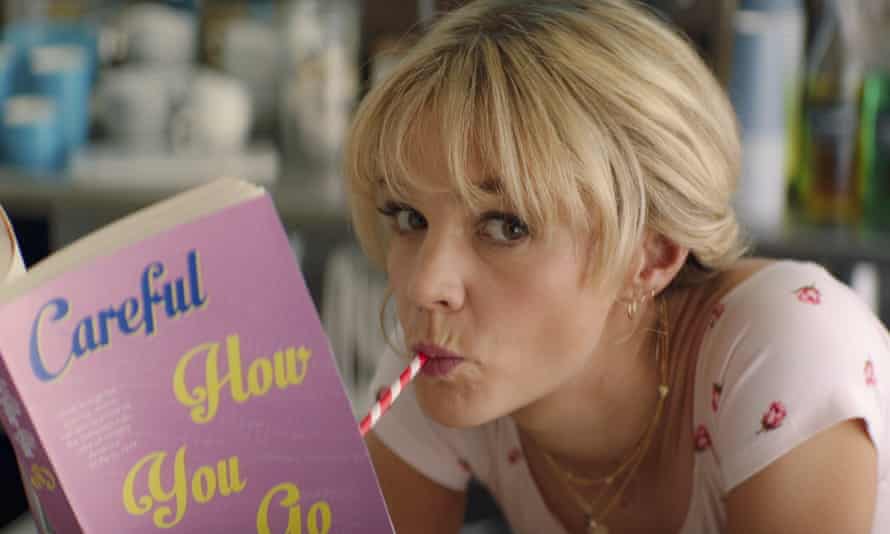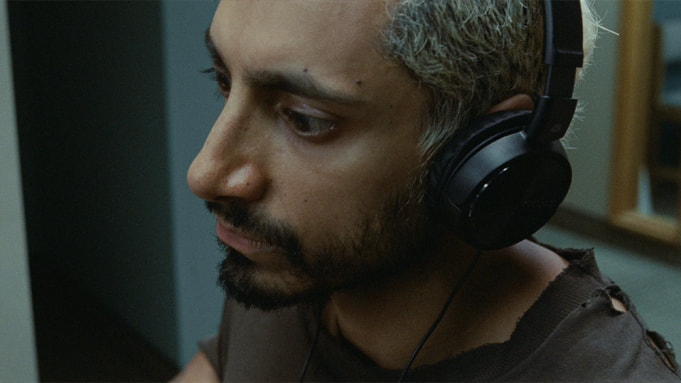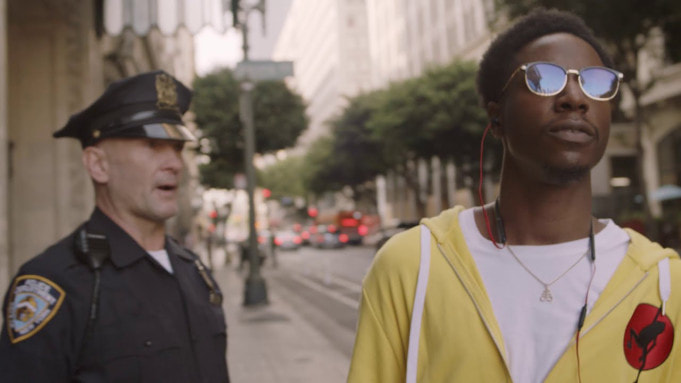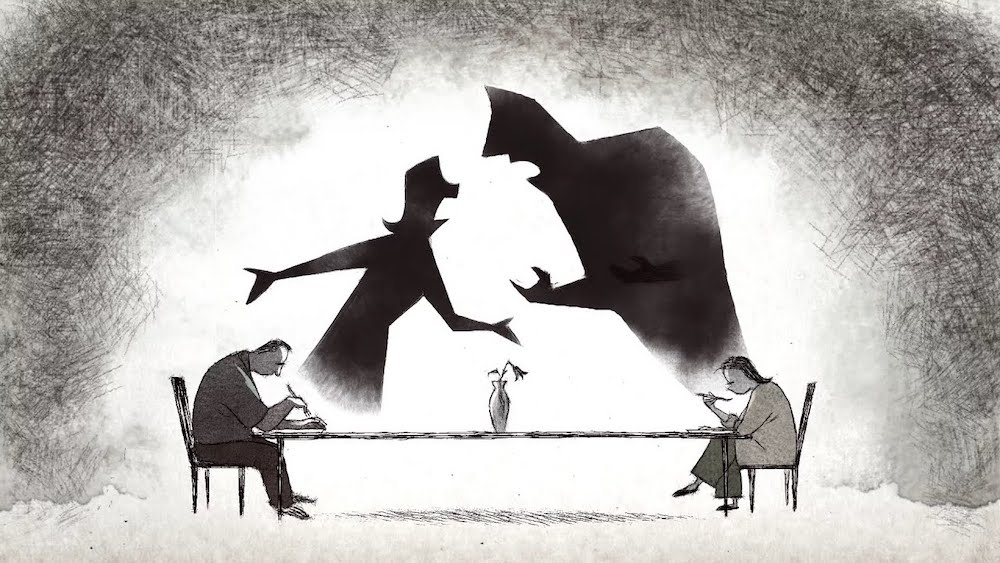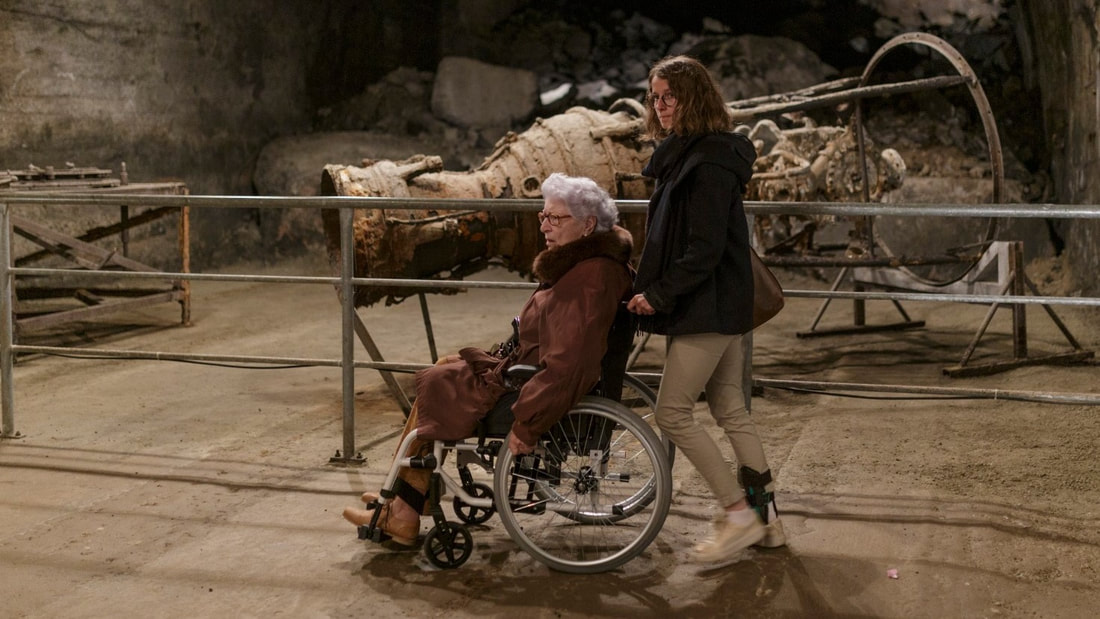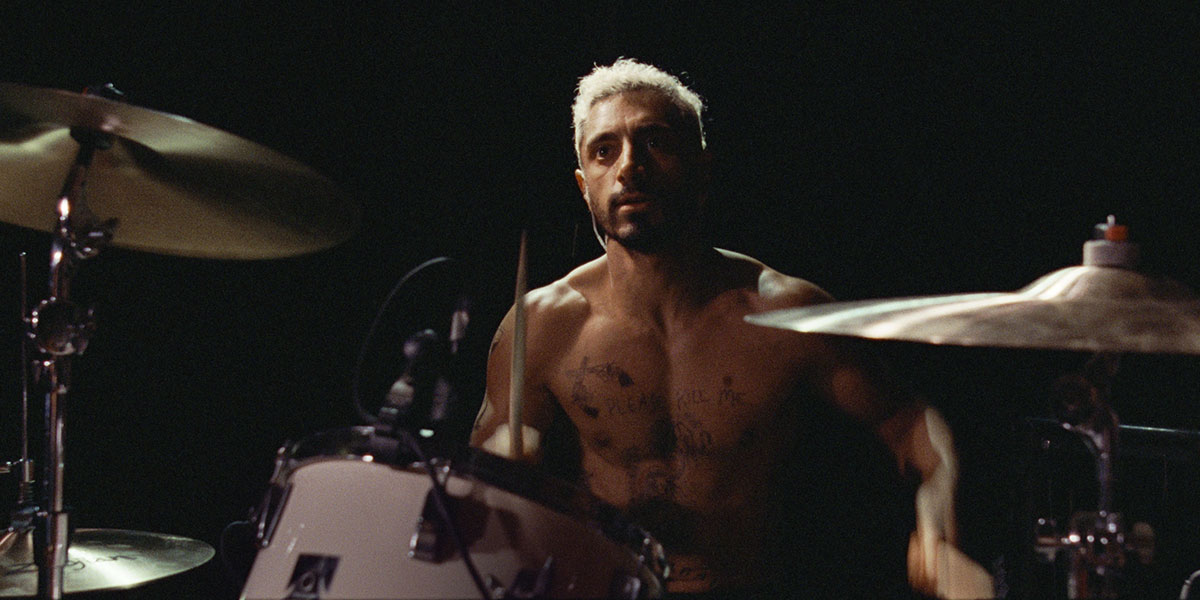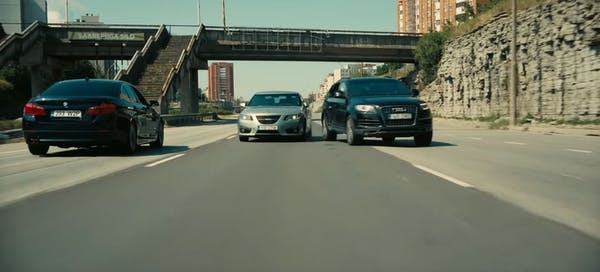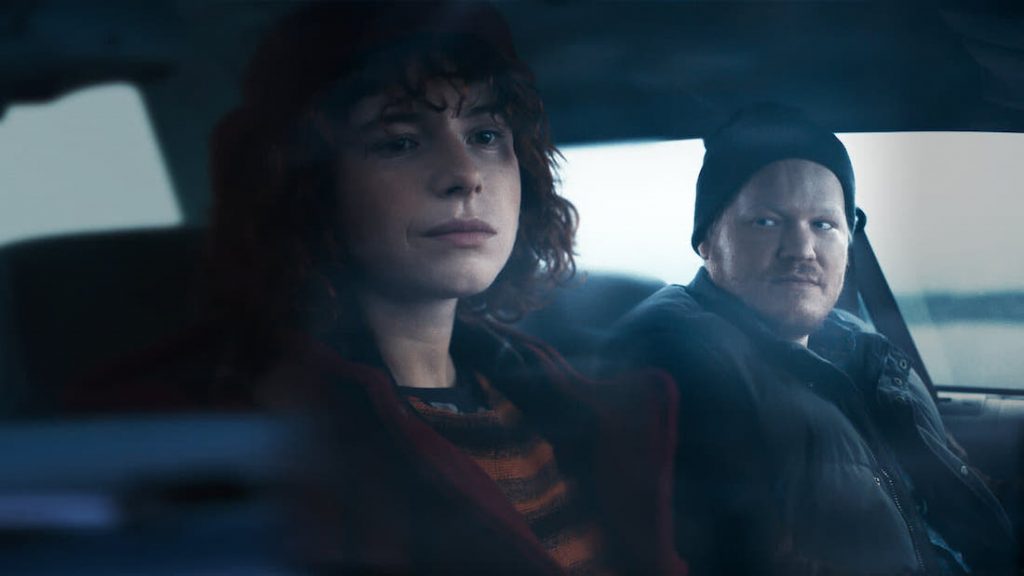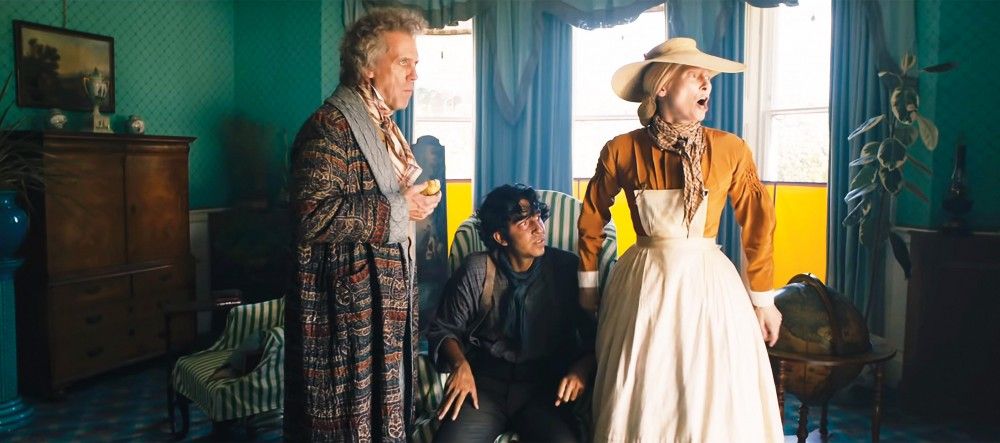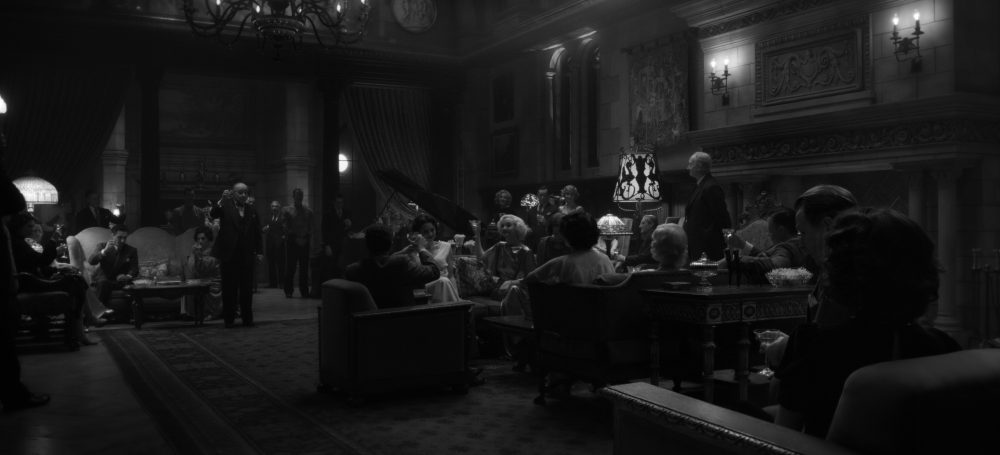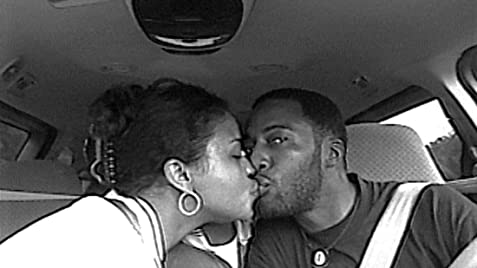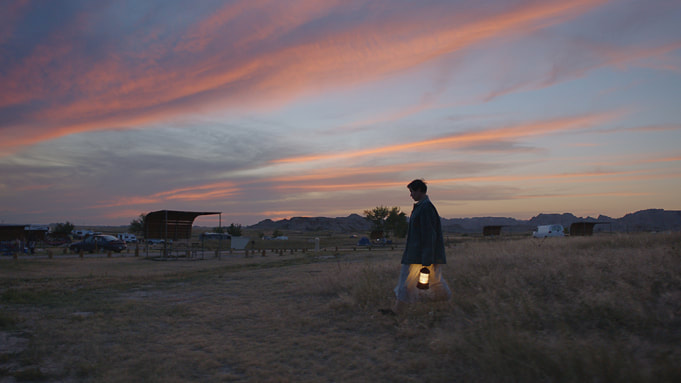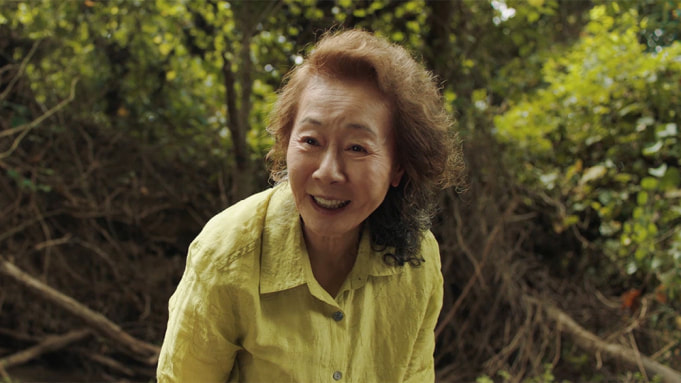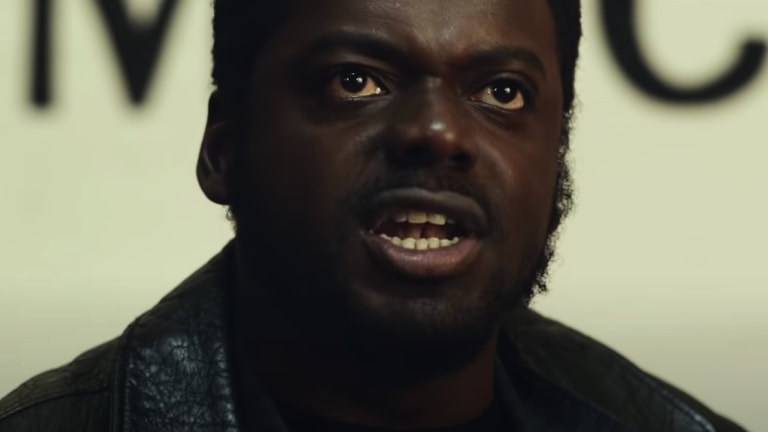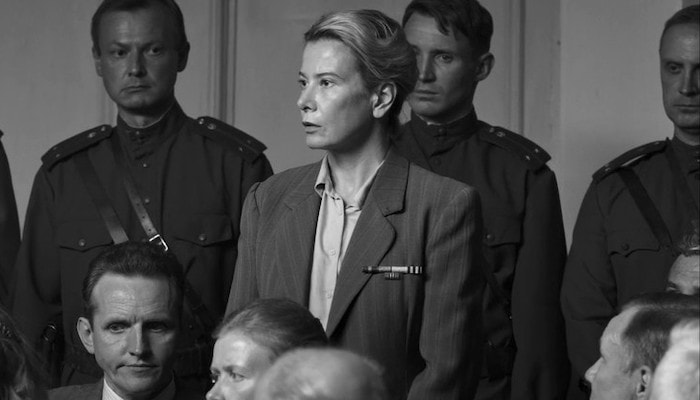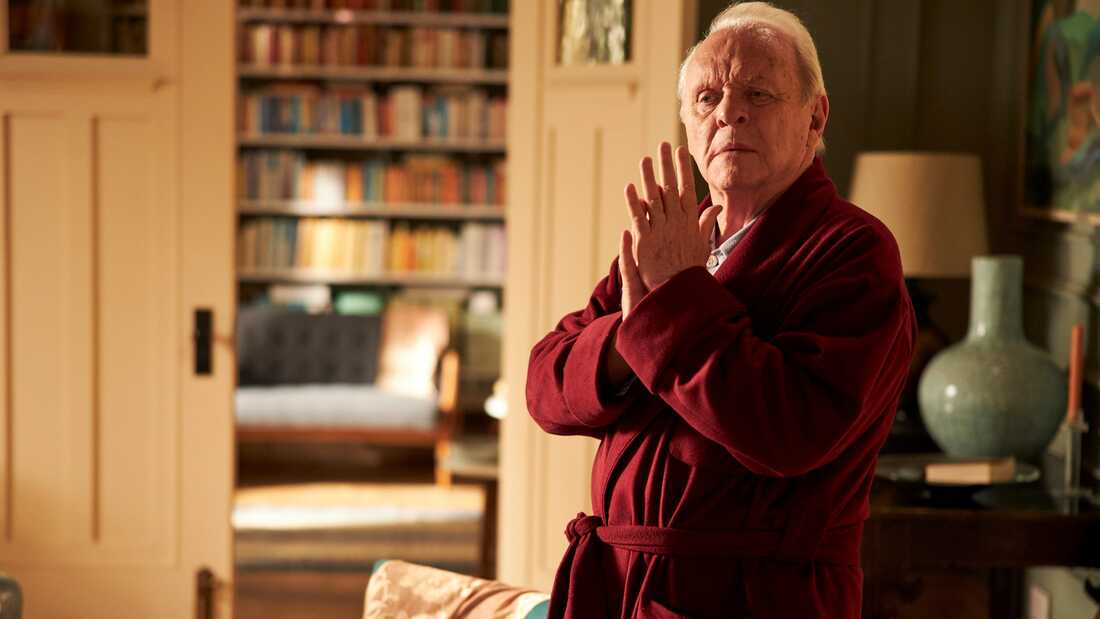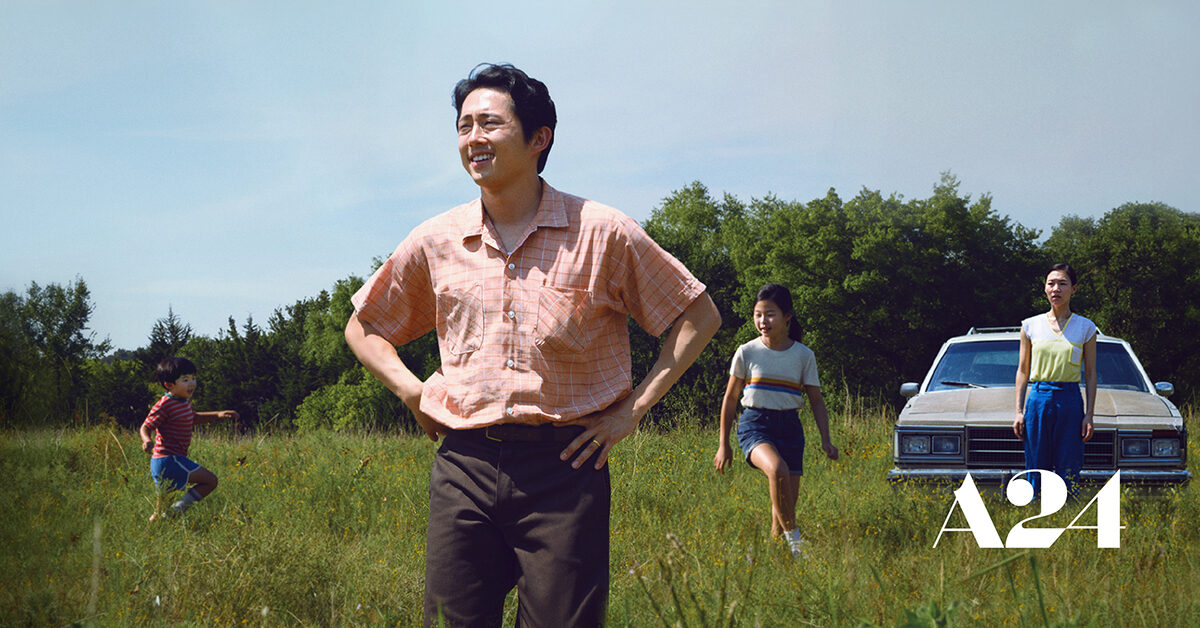2022 Oscars Review: “CODA” Sweeps for Best Picture, and That Will Smith Moment (Full Winners List)3/28/2022 The Friendly Film Fan recaps the 94th Academy Awards. The Academy of Motion Picture Arts and Sciences held their 94th Annual Awards ceremony on Sunday night, honoring the best in film from the year 2021, and what a night it was. Before diving into the winners list, as well as the ceremony itself, let’s start with the one thing everyone is talking about, because it can’t not be addressed, the most infamous Oscars moment since the La La Land/Moonlight switcheroo: Will Smith slapping Chris Rock across the face after Rock made a poor-taste jab at Jada Pinkett-Smith’s health condition, a moment which stunned audiences and spawned every conceivable form of meme. Was this justified? Did Chris Rock deserve it? Did Will Smith go too far? My answer to all of this is that I have no definitive answer. I can condemn Smith for reacting in a violent manner towards words that I also recognize were deeply insensitive, but Black men have always been condemned for even the smallest of violent altercations when white men have been making movies about and celebrating those things for as long as the Academy has been around. Then again, far worse “jokes” have been made at the expense of Academy members and Oscars attendees (largely by white men), and none of the people who made those got slapped at all, even if they deserved to be (we don’t need to go into the Ricky Gervais or Seth McFarlane conversations here though). Unprofessional though it may have been, the Will Smith moment was seemingly fueled by a need to “protect” and “stand up for the honor” of someone who didn’t need defending (even as, in many ways, the Black woman in the United States is often the one most denied defense or protection), and many victims of domestic violence hear the same justifications for the heinous things that happen to them. The truth is, it’s not for me to say whether it should have happened or not. It did. And there’s nothing that can change the fact that it happened, live, and now it overshadows everything that the night was supposed to be about. Smith himself has apologized for the incident to Chris Rock and the Academy, as one can read about in this IndieWire article, and noted that it soiled the journey of the evening, but the damage is done and there is no changing the fact that what could have been a night about the Oscars turned into a night about a beef between attendees. Now, I’d like to take a (brief) moment to discuss the Academy’s insinuation that they may ask Will Smith for his Oscar back, given what transpired, as well as its condemnation of “violence in any form”: this is bullshit. No, it’s not bullshit that the Academy has opened a review into an incident of assault on their stage, or that they condemned Smith’s actions – that makes sense for them to do, given the circumstances. What’s bullshit is the “in any form” part; how often did this body celebrate and recognize films which promoted violent racists in heroic fashion? American Sniper was nominated for six Oscars and nearly won some of them. And it's not as if the Academy genuinely has much of a problem with scandal tarnishing a film industry worker’s brand; Harvey Weinstein, Roman Polanski, Casey Affleck, and Mel Gibson all still have their Oscars, and some of those were won quite recently, Polanski’s (who drugged and raped a 13-year-old girl) as recently as 2002 (Polanski won Best Director for The Pianist). If the Academy is genuinely attempting to get better at recognizing unprofessionalism at inopportune moments, then fine, but it is ridiculous to claim that the Will Smith moment was the awards’ darkest – as many online have been doing – when Native American Sacheen Littlefeather was publicly booed by Academy members in 1973 (as John Wayne was attempting to assault her with six security guards holding him back) after deigning to ask that the film industry not portray her people in brutalist fashions and the publicly mocked at the same ceremony and the following year by Clint Eastwood on the same stage. If the Will Smith moment is truly the Academy’s darkest, they must take a good look at why they’re considering that, and not the bevvy of darker moments staining their history, as their top choice. And Smith, unprofessional behavior or not, should not have to give his Oscar back. Now, let’s all please move on. Several months ago, the Academy made the decision to cut eight of their categories for time, deciding instead to present them during the red carpet segment of the night, record the footage, and stitch them into the broadcast later on, edited for time. (Those categories were: Best Production Design, Best Original Score, Best Makeup and Hairstyling, Best Sound, Best Live-Action Short, Best Animated Short, and Best Documentary Short.) This, for many reasons, didn’t work at all, and was a terrible move by Academy President David Rubin in a bid to get the show to end by 11 p.m., which we all know did not happen. Compounding the issue further was the fact that this Oscars attempted to bring a more populist audience to its viewership and boost its record-low ratings by including things like Fan Favorite Twitter campaigns which immediately became jokes in and of themselves, a frankly bizarre performance of “We Don’t Talk About Bruno” – which was not nominated for Best Original Song nor submitted by Lin Manuel-Miranda, who wrote the music for eventual Best Animated Feature winner Encanto – and some three-host bit segments that became even less successful as the night wore on. This move was supposedly brought on by pressure from ABC (which Disney owns), a move I’ve already talked about the ickiness of, which feels even ickier when one considers the only real movie-related advertisement viewers got – beyond James Bond and Godfather tributes and a second awkward In Memoriam segment – was for Lightyear, which Chris Evans was asked to present. Lightyear, notably, is Disney and Pixar’s next release. (Side note: the ad was just the second trailer for the film, which had already been released.) More importantly, however, the move meant that viewers were robbed of seeing Dune win the first four of its eventual six Oscar victories (Best Film Editing, Best Production Design, Best Original Score, and Best Sound) during this time, and the most unnecessary category in the whole affair – Best Original Song – took up most of the ceremony’s time again, even if seeing Billi Eilish be excited about winning was one of the night’s more adorable moments. We waited decades to see Hans Zimmer win a second Oscar, and he had to accept it in a bathrobe from across the ocean because it didn’t matter if he was there or not! Searchlight’s The Eyes of Tammy Faye also won in the Makeup & Hairstyling category, during which ABC bizarrely tried to convince people that she was being interviewed on the red carpet live, despite the fact that Chastain herself said she would be in the Dolby theater as her team was being celebrated. And of course, the shorts were presented during this time, the winners of which were The Long Goodbye for Live-Action Short, The Queen of Basketball for Documentary Short, and The Windshield Wiper for Animated Short, the only shortfall on my Oscars ballot. (Humble brag, I went 22 for 23. But it was also one of the most predictable years ever, so maybe it’s not that impressive.) Moving on to the live portion of the show, some bits worked and some definitely did not. The opener of Beyonce singing her great song “Be Alive” live from Compton with all the costuming involved was great, and the show was going well for the first ten minutes or so…until it wasn’t. Amy Schumer, Wanda Sykes, and Regina Hall didn’t seem to work very well together as Oscar hosts, although it was also by no means a disaster when they presented as a group, even if the movie costumes bit started strong but just got worse as it went on (the Spider-Man Schumer moment was amusing but didn’t make much sense). In all truth, Schumer ended up being the funniest and most successful of the hosts in her individual bits relative to the laughs she got and the lightness of her comedy (the ridiculous Kirsten Dunst bit and needless disrespect of animated films notwithstanding). I mean, come on, the movie flops joke? The “Melissa McCarthy said no” moment? The “Being the Ricardos wasn’t funny” material? Hilarious! Then the night turned straight-up weird when Regina Hall wouldn’t stop talking about how horny she was, even for men as young as Jacob Elordi and John David Washington, even going so far as to ask Denzel where his son was, which was gross and uncomfortable. Wanda Sykes had a few zingers like The Last Duel flop joke and her pretty good Academy Museum bit, but largely seemed there only for bits after a while, which wore thin about halfway through. West Side Story star Rachel Zegler’s joke about not having been invited to the Oscars initially was great, though, so you win some, you lose some. And, as noted, the cutting in of the pre-taped awards wasn’t a total disaster, but didn’t help the show in any meaningful way either (apparently the transcribed nominees’ speeches on the Academy’s website are, in fact, the edited versions cut together for broadcast and not the full thing). As far as the winners are concerned, the night went largely as expected, with the safest and occasionally most boring choices winning the night. Dune added Best Cinematography and Best Visual Effects to its total of six wins for the night (all of which it deserved and all the recipients of which made sure to single out Denis Villeneuve’s iconic direction of the film), and the two least interesting winners in both Screenplay categories took home their Oscars too, those being Belfast in Original Screenplay – its only win of the night – and CODA in Adapted Screenplay. Will Smith and Jessica Chastain won their first Oscars for Best Actor and Best Actress respectively, and Ariana DeBose finished her clean sweep in Best Supporting Actress by winning for playing Anita in West Side Story, making her the first openly queer Black woman to win an Oscar and the third person to win an Oscar for playing an updated version of a character which had won an Oscar before (those being Don Vito in The Godfather/The Godfather Part II and the Joker in The Dark Knight/Joker). Troy Kotsur became the first deaf man to win an acting Oscar by taking home the award for Best Supporting Actor, and the film for which he won – CODA – succeeded in a clean sweep, going three for three on winning all its nominations to be crowned Best Picture at the end of the night, which it achieved without a Best Director or Best Editing nomination, breaking decades worth of tried-and-true Oscars stats (no film has done this since Grand Hotel in 1933). Unfortunately, The Power of the Dog – my #1 film of the year and the more deserving Best Picture winner – went one for twelve on its nomination-to-win translations, with its only win going to Best Director victor Jane Campion, making it the second-worst win streak in Oscars history. That said, I did really love CODA, so its win here is more of an underdog’s tale I’m happy to root for than a genuinely bad choice (it’s no Green Book over Roma, that’s for sure). To wrap things up on the recap, Questlove won an Oscar for his great documentary Summer of Soul (that’s the moment the whole Will Smith thing overshadowed), Encanto won for Best Animated Feature (a good movie, but not better than Flee or The Mitchells vs. the Machines), “No Time to Die” won Best Original Song (Billi Eilish is an Oscar winner y’all!), and Jenny Beavan won her third Costume Design Oscar for her stellar work on Cruella (Beavan had previously won for A Room with a View and Mad Max: Fury Road), with The Eyes of Tammy Faye taking home the award for Makeup and Hairstyling. It certainly was a night to remember, but given everything that transpired, how it was all put together, and frankly how dull the whole affair was in retrospect (minus that one moment), it probably should be one of the most forgettable. To cap it all off, I’m afraid the Academy will learn all the wrong lessons from their miniscule ratings uptick and try to do the dumb Fan Favorite Twitter polls again (which themselves got hilariously and embarrassingly gamed by the chronically online Snyder-Heads), thinking that’s the cause of increased viewership instead of the fact that people just saw way more movies in 2021 – with available vaccinations, moderately increased theater attendance, more streaming options for viewers at home, and mask mandates/revamped cleaning protocols – than they did in 2020 when the pandemic era was still just getting started and theaters were shut down for several months at a time. Hopefully, that doesn’t happen, and movies are in a better spot next year, but the next time I see Ryan Reynolds at the Academy Awards, it better not be for Free Guy 2’s Fan Favorite Awards campaign. A full list of the night’s winners (and nominees) is below. Best Picture:
So, what did you think of the Oscars this past weekend? Are you excited by any of these wins? How well did you do on your ballot? Let me know in the comments section below, and thanks for reading!
- The Friendly Film Fan
0 Comments
“It’s not what a movie is about. It’s how it is about it.” So quoted the legendary Roger Ebert, a mantra which he often attributed to his longtime friend and fellow film critic Gene Siskel. The quote is straightforward enough – what’s in a movie doesn’t matter so much to its overall quality as how the material or “content” it includes helps to tell the story. The better the story, the less added dressing is needed to keep it afloat, and no matter how much fan service or surface-level enjoyment, a story badly told will always be a bad story. Such is the attitude I took (and, I believe, that everyone should take) going into my first viewing of Spider-Man: No Way Home, the 27th film in the Marvel Cinematic Universe, the third produced by Sony and Pascal Pictures, and the MCU’s first multi-versal story outside of the incredibly successful Disney+ series Loki.
The film is quite good, and puts the MCU back on track in a big way after Eternals failed to connect the way it was probably meant to, although audiences seemed not to mind how strange and different that turned out to be. No Way Home, by contrast, seems destined to have folks clamoring to show others its inevitably high Rotten Tomatoes score as proof that it’s “the best Spider-Man movie ever,” but it seems too often that the ambition of its scope keeps getting in the story’s way. (Also, that’s not how Rotten Tomatoes works, but that’s a whole other piece.) To put it another way, I’ve already seen many sing its praises as perfect or near-perfect not because of how the story is told, but because of what is or isn’t in it. In some cases, it seems people had already decided how they would feel about the movie before it came out – amazing if it delivered the fan service they wanted, or a disappointment if it didn’t. But I’m not here only to deliberate on the meritocracy of storytelling vs. fan expectations. Without spoiling anything, what works most about the movie is the immense heart it wears on its sleeve and its intense commitment to telling this story at a grand scale. No, this isn’t a scale at the level of Dune or even the most epic of Spider-Man films in terms of pure scope, but its ambition is so monstrous, one wonders how the film never collapses under all that weight – of expectations, of story pursuits, of everything it’s carrying. It stumbles a few times, to be sure, and there are certainly moments where the heart of it is sacrificed for the sake of another MCU-style joke (you know the kind), but when it really swings for the emotions, it somehow manages to squeeze them out of you, regardless of whether you know you’re being emotionally manipulated or not. The performances are all swell as well, though I could have done with some of Alfred Molina’s Spider-Man 2 uber-sincerity sneaking its way into the Doc Ock character here; he’s good in the film, but the writing for him is too snarky, whereas the character in the original films was more ponderous with his dialogue. On the other hand, there is quite a bit that holds the movie back from being a truly great MCU movie, even if it’s already solidified itself as one of the better Spider-Man outings. For starters, its ambition forces the story to stretch itself a bit thin, and while the fan service in the movie mostly works, it doesn’t have much of a purpose in contributing to this story apart from serving as distraction when the story can’t quite figure out what to do with itself. As for how it doesn’t contribute much under its surface, it’s difficult to say without spoiling some plot elements, so I’ll save that for the Spoiler Review in a few days. Another thing that doesn’t quite work are some story threads being picked up and then dropped as if they were never addressed; whether these threads appear for the sake of a joke or a cool dramatic moment depends on which thread one pulls, but a few of them are simply never brough up again, no matter how much sense it would have made to do so. This plays into what I mentioned earlier – undercutting heart with humor. It’s clear that Jon Watts and company love everything this character can do, and what he chooses to do, but occasionally it seems as if they’re not really sure who he is as a person, what drives him the most. There are sequences where he needs to make a tough decision, but others end up deciding for him, rather than him finding the solution himself. So often moments that could easily be the small, heartfelt ones are traded for jokes or fan service or for action beats (even if they’re really good action beats) enough that the moments of genuine emotion the audience is supposed to feel – even the ones they should feel the most – feel like afterthoughts to the film’s larger concerns of pleasing as many viewers as humanly possible. And now it’s time to get to the thing that’s been my biggest issue with all three MCU Spidey movies, but I haven’t really addressed yet in any meaningful way: Spider-Man, the character, has had almost no tangible relationship to New York City for 3 MCU movies now. That’s not to say he doesn’t interact with New York at all (he does a little at the beginning of Homecoming), but the vibrant location so central to both the idea and mythos of Spider-Man is barely given any screen-time in Jon Watts’ films. It’s there, but it’s a background, an afterthought, a way for us to know where the movie is happening, but not why. NYC doesn’t really have any bearing on where the story goes or the decisions any characters make. Sam Raimi’s on-screen iterations of Spider-Man were thoroughly a part of NYC, and constantly engaged with the people in it. Even The Amazing Spider-Man has that fantastic crane sequence. NYC is just as much a part of Spider-Man as the suit itself or the powers, and relegating it to what is essentially a CGI treadmill just to get the title character from one place to another while doing “more important” things feels like a huge missed opportunity for this “Home” trilogy. Perhaps with a tighter script and more sincerity, No Way Home could have been the best Spider-Man movie ever made, but the MCU and multi-verse of it all keep getting in the way of letting that happen, for one reason or another. It’s still a very good movie, don’t get me wrong, and I’ll have a lot more positive things to say when I can actually talk about why I liked them in greater detail in the spoiler review, but for now, that’s all I can really say. I certainly don’t begrudge people who genuinely love this and I wouldn’t dream of telling anyone not to go see it in theaters – lord knows those places could use the help right now – but I would encourage people to look past what’s in the movie, and instead judge it on how its contents are employed. You might find that the film even gets richer for it. I’m giving “Spider-Man: No Way Home” a 7.8/10. - The Friendly Film Fan Black Widow is the 24th film in the Marvel Cinematic Universe, and the first to release in theaters in almost two years. It is set just after the events of 2016’s Captain America: Civil War and follows the titular character, a.k.a. Natasha Romanov (Scarlett Johannson), as she goes on the run from the U.S. government following her violation of the Sokovia Accords and direct assault on the Black Panther (if you recall, this was during the airport fight, when she helped Steve and Bucky flee). Needless to say, things have gotten complicated, as the former Soviet assassin turned defector to the United States now has no country to call home, and no family to return to…or so she thought. As it turns out, Natasha’s former surrogate sister Yelena (Florence Pugh) is attempting to contact her in order to ask for her help freeing the other Widows from the Red Room – the mysterious location of Natasha and Yelena’s original indoctrination – and the control of the man behind it, who is thought to be long dead. With limited resources and strained relationships to the only ones who can help her, Natasha must confront the darkness of her past, and once and for all put an end to the very organization that made her what she is. This film also stars David Harbour, Rachel Weisz, O-T Fagbenle, Ray Winstone, and William Hurt.
The history of Black Widow’s release is complicated, to say the least. Due to the overwhelmingly fast advance of the infamous COVID-19 pandemic in early 2020 across the globe, and after a worldwide movie theater shutdown, the film was postponed to November, where it remained on the release schedule for some time. Then, a while later, once it was realized that this worldwide nightmare would actually last quite a lot longer than it ever needed to (and those averse to basic vaccine logic and common sense science certainly weren’t gonna help speed things up), the film was once again delayed to May of 2021. And then, due to some inevitable release calendar shuffling and an eagerness to just get the film in front of eyeballs, the final release was set for yesterday, July 9, with the added bonus of a Disney+ Premier Access release. From the time of original release date to the eventual one, Disney+ has launched no less than three brand-new MCU shows, two of which have now concluded (and one whose finale is in less than a week). The middle of those shows – The Falcon and the Winter Soldier – was meant to be the first one out of the gate, and was supposed to have come out before this film, so naturally, there’s a lot of re-contextualization that needed to be done, and the spotlight on Marvel Studios has never been larger. So, after fans clamored for a solo feature for so long, was Black Widow, the first MCU film in almost two years (and the single movie most likely to get people back into the habit of theatrical moviegoing), worth the wait? Well…sort of. In its purest sense, the primary reason this movie was worth all the waiting was just getting to see an big-budget MCU movie on the big screen again. My showing was packed with eager fans ready to come back to the movies for the series they know and love, and that’s a really underrated aspect of watching these things theatrically – the sense of community one feels with everyone else around them experiencing this event. Unfortunately, the film can’t help but feel like a placeholder due to both its setting and some story elements that felt woefully underwritten for only the MCU’s second female-led superhero outing, especially one concerning a character fans have been clamoring for a solo movie from since Iron Man 2 in 2010. Don’t get me wrong, as a movie, Black Widow definitely works just about as well as most other mid-level entries in the unstoppable force that is the Marvel machine: the action is pretty decent, the performances are all really solid and get the job done, it moves at a solid clip so you’re never bored, and the central mystery at the heart of it all is actually not what one might expect come time for the big reveal. However, all of those things have their own little caveats in this one that force them not to live up to the potential they all have. And a lot of that comes down to a balance problem that the film just doesn’t seem to know how to work around. To start with what really works, the opening chase sequence of the film is quite thrilling and really well-helmed, even if we never do get anything quite to its level in the film after that. The tension, the desperation as an “Americans”-style espionage family has to flee back the motherland is palpable, and they manage to give genuine weight to the surprisingly dark proceedings immediately following that chase. The performances throughout the film are also pretty good across the board, even great in some cases. Scarlett Johansson is in as fine a form as ever as Black Widow, and wears the character extremely well, although the script itself doesn’t give her a lot of room to flex her acting muscles like she could in other things such as Marriage Story or Under the Skin. Rachel Weisz is also good for what little screen-time she actually has, but unfortunately isn’t in it enough to make much of an impact on almost anything. However, it’s Florence Pugh as Yelena Belova and a delightfully over-the-top David Harbour that end up stealing the show nearly every time they’re on screen. Harbour’s bad Russian accent aside, the man is having an immense amount of fun in the film, and I do sincerely hope we’re able to see more of the Red Guardian in future projects. It’s Florence Pugh, though, who ends up stealing the movie out from under just about everyone, including Scarlett Johansson. Pugh commands the screen every second she’s in the frame, and everything that works about the movie is dialed up to 11 as she makes all the funniest jokes, gets all the best action moments, and generally keeps the more out-of-the-box elements at a believable level. It’s a pretty safe bet to assume that the future of this character lies on Pugh’s shoulders, but luckily, she’s got pretty strong ones to carry it on. Unfortunately, the performances are the only positive I can elaborate on at length without getting too close to spoiler territory for comfort, so now we have to move on to the negatives, starting with the fact that Taskmaster as a villain just isn’t compelling or all that interesting past the initial confrontation with Black Widow. The Taskmaster, for those who don’t know, can mimic any combat move by simply watching it happen once, the conceit being one can never use the same move twice while fighting, or Taskmaster will rip them to shreds. There’s a lot of potential there for really cool, interesting fight sequences, but the film really only ever uses this once, and the next time we see any of the Avengers’ moves being used in a Taskmaster fight, the movie cuts away until after the fight is over. Beyond that, there’s just not much to the character other than that they really just act as a secondary villain to the main antagonist, whom I won’t spoil the identity of here, but is by far the most underdeveloped villain the MCU has had in quite some time. His name is mentioned several times leading up to the climax of the film, but we never really get to know him as a character, and once the film does get around to him, he really doesn’t do much but talk about how powerful he is, only barely giving a demonstration before he’s pretty hastily being dealt with. And that’s really Black Widow’s biggest issue: a lack of character development. Up to this point, we’ve known all about Natasha Romanov, but never really knew her. It’s all been unexplored backstory and lore, never a deep dive into who she is as a person or what got her to where she was outside of the Avengers circle, and this movie, for whatever reason, never goes deeper than what we already know beyond a few flashbacks that seemed like a more interesting movie. We only get to see the events that happen to or around her, but never the ones that challenge her perception of things or the ones that made her into the trained killer she already has been for the past 11 years. What we know about her at the end of the movie is the same stuff we already knew about her at the beginning, and the character just sort of stays in one spot the whole time. That’s not necessarily a bad thing in itself, but it doesn’t really work for this character, and the film left me disappointed that there wasn’t any deeper insight into Natasha’s being. The film also has a little bit of trouble balancing its story and action beats in ways that feel more fluid. What’s there works well enough, but there’s not quite enough story up front, and not quite enough action towards the middle of the movie. The pacing of it all isn’t affected enough for it to be an egregious error, but one imagines the structure of the film could have used another pass or two in order the make it flow more naturally. In the end, Black Widow is hardly a bad MCU film by any stretch, and in fact has a lot of good things going for it, but wasted villains, a lack of character development for the central protagonist, and a story that doesn’t feel like it can really go anywhere significant since it’s stuck between these other films makes it feel like mid-tier Marvel at best. At its best, the film is entertaining, sure, but it still feels as if it’s just trotting along to the ones that can make actual progress, and ends up feeling kind of empty as a result. It’s a pretty good time to have at the movies, and I’m glad the MCU is back in theaters, but if you’re hoping this will be the grand resurrection of Marvel’s theatrical dominance beyond the box office, the one to blow your socks off, I’d suggest maybe waiting for Shang-Chi or Eternals instead. I’m giving “Black Widow” a 6.8/10 - The Friendly Film Fan In the Heights was directed by John M. Chu (Crazy Rich Asians) and is a feature film adaptation of the beloved Broadway musical by producer and creator Lin-Manuel Miranda (who also created Hamilton). It centers on the neighborhood of Washington Heights, New York, and the Latino community that lives there, particularly one Usnavi, as played by Anthony Ramos. As richer, whiter people move into the neighborhood, many of the people Usnavi has known all his life are preparing to leave, whether to move themselves or their businesses to different neighborhoods, sell those businesses entirely, or – in Usnavi’s case – leave the country to return to the Dominican Republic from whence he emigrated. The salon ladies that work in his neighborhood have been priced out to move to the Bronx, the girl he’s crushing on is hightailing it downtown to pursue a fashion career, and Mr. Rosario (who owns the traffic dispatch) is struggling to hold on so his daughter Nina can finish college. In fact, Nina might be the only person actually running towards home instead of away from it. In short, the block he lives on is quickly disappearing, and it won’t be long before the life he knows is gone forever. But, with a song in their hearts and the future on their minds, Usnavi and his community may just be able to leave their own stamp on the neighborhood of Washington Heights, wrapped in little details, to both build and preserve the legacy of those who came before. This film also stars Melissa Barerra, Leslie Grace, Corey Hawkins, Gregory Diaz IV, Olga Merediz, Jimmy Smits, Daphne Rubin-Vega, Stephanie Beatriz, Dascha Polanco, Lin Manuel-Miranda, Christopher Jackson, and Marc Anthony.
When I first saw In the Heights a little over a month ago at a Mother’s Day screening, I’ll admit to having felt fairly underwhelmed by it. My initial thoughts were that it was far too long, the main plot didn’t really kick in until about halfway through, and then it took forever to wrap up. Plus, the music wasn’t nearly as dynamic or orchestral as I’d been led to believe by the film’s high-energy marketing and trailers, feeling more like the initial idea of what Lin-Manuel Miranda would eventually do with Hamilton, rather than feeling like it belonged in its own story. Some of those thoughts – in part – still hold true in fact (though only partially). The midpoint being treated as the emotional climax of the film does make its placement a bit weird, structurally, and still makes the film itself feel a little bit too long for the story it’s attempting to tell. However, upon my second viewing, just yesterday, most – if not all – of my other thoughts on the film became secondary to what I experienced sitting in a giant movie theater with a big screen and even bigger sound. The initial issues I had with it were notable, but insignificant compared to the sheer joy and energy on the screen. I felt a connection to every character, I understood the point of nearly every song, I enjoyed every single performance, I was fascinated and enamored with absolutely every single element of the costume and production design, and even if the film was a bit too long, I didn’t care. I just enjoyed getting to experience it. It’s not often a second watch assuages my doubts about a first (Quo Vadis, Aida? notwithstanding), but for that to happen here was a real treat. In the Heights isn’t light on plot because it doesn’t have a story to tell; it’s light because the story it’s telling isn’t about any one character or singular event or journey. It’s about the whole community, about how it was there, how it disappeared, how it’s still kept alive in memory and legacy, by the kind of stamp an entire people can put on a place so that no one forgets about them. I think I missed that the first time, but whilst watching it this time around, that element stuck with me the most. From Usnavi’s dynamic introduction to the world he lives in to the struggles of the people within it, to the final revelations of just what happened to them all, I genuinely felt a connection I couldn’t feel the first time because I was too focused on analyzing whether it was particularly well-shot or well-directed. (And, to be fair, while neither of those elements stick out amongst the wealth of other great things in this movie, they’re good enough that I can’t speak out against them either.) This is a dynamic portrait of the joy of a Latinx neighborhood on fire, and every element of the story is positioned not to make one person the center of it, but to make the neighborhood the center. Everyone, from Usnavi to Vanessa to Nina to Abuela, to Benny, to the salon ladies, has a place in this story. While that may sound like the film stretches its stay a bit, that stay is entirely worthwhile to get the whole picture. This is the story told by the finished photo on top of the box, not just the one puzzle piece that fits in a particular place. To be true, I am not of Latin descent, so I will never know the full joy or disappointment a Latinx person could feel at the outcome of this film, but if I could feel such a connection to this little block in just my second viewing of a single film, I can only imagine what having this beautifully-told story that refuses to engage in stereotypes could do for people who are. Of course, the music is all brilliant, filled to the brim with clever lyricism (plus mixes between Spanish and English), catchy instrumentation, switches between musical-style singing and rapping that keep nearly every number fresh, and a whole lot of heart, but we already knew that. The impressive part is how the actors in the film manage to shoulder it all without a single moment feeling false despite the occasional dub not quite coming out right. (I’m as big a fan of Les Misérables as anyone, but let’s stop pretending that the sound mixing in Tom Hooper’s 2012 adaptation is particularly great, or that making the actors sing live was all that clever of an idea; dubbing is the way to go for movie musicals, especially physically strenuous ones.) I’m not sure the performance of Anthony Ramos ever blew my mind or even impressed me by any stretch, but he’s perfect for this part, shouldering so much of the story’s greatest weight, it’s a wonder his performance never once quivers at all. (And, of course, shout-out to Lin-Manuel as the Piragua guy. Great stuff.) There’s never really a “moment” for him outside of the intro, but given how much he actually has to do otherwise, that’s something I can live with. The true MVPs of the film, however, despite Anthony Ramos’ ostensible lead, are the women of the block: Melissa Barrera, Leslie Grace, and especially Olga Merediz as Abuela Claudia. (Merediz in particular even has a decent shot at a Supporting Actress nomination if the studio plays its FYC campaign right.) Their performances, along with that of Corey Hawkins – who is quickly becoming a musical secret weapon – are what I kept coming back to every time I thought about the ones I loved the most amongst a host of great ones. Each of their stories is radically different, yet they are all tied together, and the depths to which they are allowed to go should land them some awards attention regardless of the sort of competition they might run into come fall. In the Heights is a film born of joy and legacy, of pride and perseverance, dare I say it, of Paciencia Y Fe. It is so clearly a labor of love for everyone involved that one can’t help but connect to it at some point in those first several minutes. If you’re just going into it fresh, without ever having known about the musical (as I did the first time), you may find yourself underwhelmed, but trust me, give it another shot, on the biggest screen with the best sound that you can possibly get. This movie demands a theatrical experience and supports the need for it every step of the way. Whether it will have legs enough to meaningfully compete is anyone’s guess, but without a doubt in my mind, this thing will be at the Oscars (hopefully for Costume Design, Production Design, and Sound), and is more than likely the first film of 2021 to have a legitimate shot at landing a nomination for Best Picture of the Year. See it. I’m giving “In the Heights” a 9.3/10 - The Friendly Film Fan “Nomadland” takes home 3 awards, including Best Picture, and a dramatic category order switch leads to an anti-climactic tailspin of a finish. Hello, all, and welcome back to The Friendly Film Fan! Well, the Oscars have finally happened, and the winners have been announced in what I can only describe as the most baffling and anti-climactic finish to an Oscars show that I have ever seen in my lifetime, one that made me angry, upset, and flabbergasted in its production choices and deliberate messiness, the only reason for which did not end up happening at all. To get it right out of the way up front, Chadwick Boseman lost what would have been a posthumous win in the Best Actor category for his career-best work in Ma Rainey’s Black Bottom to Anthony Hopkins for his equally brilliant performance in The Father. Hopkins gave a short speech this morning thanking the Academy, as well as paying tribute to the late Boseman, because Hopkins is a class act all the way around and a genuinely good human being. The win itself was not something with which I took issue; in fact, I somewhat hoped Hopkins could pull off the upset, as his was my favorite of all the performances given in 2020. But the way the moment was handled was nothing short of infuriating. For those who did not watch the ceremony live, the Oscars (of which Steven Soderbergh was a co-producer) decided to give out the award for Best Picture (which went to Nomadland) before giving out Best Actress, and then finally Best Actor, presumably so that when Boseman won, they would be able to honor him with the final award of the night. Except Boseman then lost, and Joaquin Phoenix – who announced the award and seemed very uncomfortable with it – peaced-out immediately, as Hopkins was not there to receive the statuette. I’m also learning after the fact that Olivia Colman, who was also nominated in Best Supporting Actress for her work in The Father, was meant to accept the award on Hopkins’ behalf, but was unable to because the ceremony was cut short so quickly after the announcement. Dragging Boseman’s widow into a live awards show during a pandemic, changing the awards order to chase some big dramatic finish with his posthumous win, playing soul music as Phoenix walked out to announce the category, only for Boseman to lose to someone who wasn’t there (through no fault of his own) will forever be remembered as not just one of the most dramatic endings the Oscars has ever had, but one of the worst endings it ever will. The production decisions made in the last 15 minutes of the ceremony were atrocious, and I desperately hope that the Oscars never tries to put Best Picture in any place but last ever again, especially because of how that switch of orders played out. All that being said, there were plenty of other pleasant surprises in store for this Oscars, some historic wins, and some close races that came down to the wire, where I think the right decision was made (even if it significantly messed up my ballot). Chloé Zhao’s brilliant, humanistic Nomadland ultimately took home 3 Oscars, including Best Picture, Best Director for Zhao – who is the first-ever woman of color to receive the award and only the second woman ever – and a semi-surprise win for Best Actress Frances McDormand, cementing her in the elite club of people who now have 3 acting Oscars to their names (McDormand also won a Best Picture Oscar as a producer on the film). The only other actress to win as many Best Lead Actress Oscars or more is Kathrine Hepburn, whose count numbers 4. In other news, The Father also secured a win for Best Adapted Screenplay following a surge of momentum, and the wonderful Sound of Metal managed to best The Trial of the Chicago 7 in Best Editing (it also won Best Sound), rendering the latter film completely Oscar-less by the close of the ceremony. Erik Messerschmidt pulled off the upset to double Mank’s Oscar take by giving it Best Cinematography in addition to the expected Best Production Design, and “Fight for You” from Judas and the Black Messiah pulled off a dark horse triumph winning Best Original Song. The documentary short film, Collette, also managed to pull off an upset win, making this one of the most unpredictable Oscars in quite some time, with only one movie (Nomadland) winning more than 2 Oscars total. I won’t speak on every single winner, but it is also important to note that two thirds of the makeup team for Ma Rainey’s Black Bottom (Mia Neal and Jamika Wilson), recognized for the first time in any category, are the first pair of Black stylists to win that award, which they shared with fellow nominee Sergio Lopez-Rivera. As well, Yuh-Jung Youn, who pulled off a win for Best Supporting Actress in the achingly beautiful Minari, is the first Asian actor to win a performance Oscar since The Killing Fields in 1984. In truth, every winner selection – even the upsets and unexpected ones – were great choices. It’s just unfortunate that the ceremony itself turned so sour so quickly, practically snuffing out in seconds any real excitement one could have felt at the prospect of any remaining upset wins. That being said, it is just one show, and I’m sure next year will seem a drastic improvement in the aftermath. Here is your full list of winners for the 93rd Annual Academy Awards! Best Picture: Nomadland Best Director: Chloé Zhao, Nomadland Best Actor: Anthony Hopkins, The Father Best Actress: Frances McDormand, Nomadland Best Supporting Actor: Daniel Kaluuya, Judas and the Black Messiah Best Supporting Actress: Yuh-Jung Youn, Minari Best International Feature: Another Round Best Animated Feature: Soul Best Documentary Feature: My Octopus Teacher Best Cinematography: Erik Messerschmidt, Mank Best Film Editing: Mikkel E.G. Nielsen, Sound of Metal Best Production Design: Donald Graham Burt and Jan Pascale, Mank Best Costume Design: Ann Roth, Ma Rainey’s Black Bottom Best Makeup & Hairstyling: Sergio Lopez-Rivera, Mia Neal, and Jamika Wilson, Ma Rainey’s Black Bottom Best Original Score: Jon Batiste, Trent Reznor, and Atticus Ross, Soul Best Original Song: “Fight for You,” Judas and the Black Messiah Best Adapted Screenplay: Christopher Hampton and Florian Zeller, The Father Best Original Screenplay: Emerald Fennell, Promising Young Woman Best Visual Effects: Tenet Best Sound: Sound of Metal Best Live-Action Short: Two Distant Strangers Best Animated Short: If Anything Happens I Love You Best Documentary Short: Collette What did you think of the Academy Awards this year? Did you predict any of the upsets correctly? How well did you do down the ballot? Let me know in the comments section below. Thanks for reading!
- The Friendly Film Fan Hello, all, and welcome back to The Friendly Film Fan! As we are exactly one week and one day away from the 2021 Oscars, the time has now come to announce, at last, the winner for the 5th Annual Fisher Awards! These awards have been a long time coming and have been carefully considered and poured over for weeks on end, constantly pondered and meticulously analyzed, in order to select what I feel is the best representation of nominees and winners for each individual category. For a more detailed explanation of how the categories are crafted and nominees are selected, please go ahead and take a look at my initial piece on the 2021 Fisher Award Nominees here. And now, without wasting any more of your time, let’s get into it. Here are you winners (marked alongside their fellow nominees) for the 5th Annual Fisher Awards. Best Sound Design:
The category of Best Sound Design can often be a contentious arena in awards shows, but sometimes a film will come along that makes the crowning all the easier simply by virtue of how prominently its sound stands out among the pack. This year, that film is Sound of Metal, in which the sound is not only the most powerful element of the film, but the key ingredient to making every part of the story work. Its absence is excruciating for Ruben, its presence only barely registered until it’s gone, and while Sound of Metal may be the obvious choice, in this category, what other choice could there be? Best Visual Effects:
All of these films have phenomenal visual effects. The Invisible Man makes the titular character practical and terrifying. Soul’s animation and visual effects in lighting are second-to-none in terms of pure creation. Welcome to Chechnya’s VFX are the rare example of visual effects with a purpose beyond serving the film that they’re in, and though the Visual Effects Society has handed their award to The Midnight Sky, I have selected Tenet as the winner here for how seamlessly it weaves visual effects into both its action and non-action sequences. Some visual effects are obvious and impressive, but so often it’s the more subtle effects – the ones the audience doesn’t even notice – that are the most effective in their use. Tenet, according to director Christopher Nolan, may have less than 200 VFX shots total, but every one it does have is as seamless and invisible as if there are no VFX at all. Best Screenplay:
There were any number of great screenplays this year, from the deep-reaching power of Soul to the boldness of Promising Young Woman to the speechifying and performance-driven monologues of Judas and the Black Messiah, and normally an original screenplay would be primed to take this award at The Fishers. However, this year, the only adapted screenplay in the category – Charlie Kaufmann’s sublime work on i’m thinking of ending things – is declared the champion. Based on the novel of the same name by Ian Reid, i’m thinking of ending things is a ridiculously difficult book to adapt without giving away the game too early on, and to his endless credit, Kaufmann doesn’t use the twist of the narrative as a “gotcha” moment for the audience like so many other writers or directors would be tempted to do, but rather as a way of exploring the personal, of extrapolating the ideas and themes presented by the film itself. It’s a remarkable adaptation in movie form, and by far the most fascinating script of these to study over and over again. Best Original Score:
The Oscars will almost certainly give the win to Soul, and will be a well-deserved win. The Trent Reznor & Atticus Ross score is absolutely one of the very best of the entire year, and I will have no issue with it taking home the golden statue. For me, though, the Best Original Score is not only about what the most dynamic, memorable, or effective music is in the moment of watching the film, but what most effectively evokes the memory of watching it after the fact. What pieces of music most effectively communicate the themes, the tone, and the overall mood of the piece to which they are attached; in other words, do the vibes match? For both Tenet and Minari, this is true, but the more evocative of the two I believe is the latter, composed by Emile Mosseri. Mosseri’s work on Minari, while it plays with many different variations on its main theme, is largely consistent, and evokes exactly the tone that Minari is hoping to strike in its narrative and presentation. All of the scores here are great works by composers more than capable of creating masterpieces, but it’s Emile Mosseri’s work here that has stood out to me, especially lately, above the rest. Best Character Design (Costumes + Makeup & Hairstyling):
Unfairly shut out of the 2021 Oscar nominations, The Personal History of David Copperfield is a delightful film full of bright performances and stellar writing, but its shiniest element by far is the design work through every period costume present in the film, which, when combined with the makeup work, makes every character a distinct, memorable portrait all their own. Rather than simply use the period costumes and makeup as a way to demonstrate the era, the designers put each of their own personal flecks of design into each character’s look, and weren’t afraid to include some things that – while not entirely period accurate all the way around – spoke to their individual personalities in taste. Plus, they made us believe that Morfydd Clark was two different characters in the same movie, and that is an achievement worth celebrating. Best Production Design:
When discussing the category of production design, we’re talking about much more than just the characters or individual elements; we’re talking about the whole of the picture. How do the sets look, are the locations fitting, how are the costumes, the hair, the makeup, what does the full image bring to mind or evoke in the viewer? These are all things to consider, but no film quite captured every design element’s lighting-in-a-bottle aesthetic like Mank, which famously recreated several iconic Hollywood landmarks, including the famous Hurst Castle in which the film contains its final sequence. Everything about Mank evokes the late 30s/early 40s era of Hollywood moviemaking, and nowhere is that more prominent than the design work. Whether or not Mank is a film worthy of the number of Oscar nominations it has is up for debate, but no one can deny in truth that it is a technical achievement beyond reproach. Best Film Editing:
Film Editing may be the most important job on any movie – whatever the director and DP have shot, whatever script was rehearsed and performed, whatever other live elements are used to make a movie, the edit bay is where the movie itself lives and dies. A good film can be made great by the edit, and a mediocre one can be brought even lower, but nothing lives or dies by the edit like documentaries. A great documentary editing job is the difference between something general audiences dismiss as boring or uninteresting out of hand and an absolutely absorbing work of filmmaking worthy of its own picture award. And no movie this year was more impressively edited than Time, Garrett Bradley’s incredibly moving portrait of one woman’s 20-year wait for her husband to be released from prison. Beyond being attached to a brilliant documentary, the edit of Time brings 20 years into a sharp, 80-minute focus, and to be able to preserve every theme, every important moment, and every ounce of meaning within such a short window to tell this story is nothing short of miraculous. Best Cinematography:
Another one of these awards that may seem obvious, but is nonetheless deserved, Joshua James Richards’ work on the gorgeous Nomadland is second-to-none. Richards’ camera conjures some stunning images as Fern journeys across the American heartland, absolutely, but so often it also captures the loneliness, the heartache, the isolation of having to journey out on one’s own and find a new way to live in the face of total economic collapse. It’s also not afraid to sit on the uncomfortable moments, to get up close and personal in the most intimate times of Fern’s journey, no matter how awkward or heartbreaking they might be. This is a movie with a point to make, but it refuses to make it until the viewer accepts its invitation to conversation, and that speaks not only to how well it is directed, but to how perfectly and powerfully it’s shot. Best Supporting Actress:
I poured over this category for such a long time, all the way up to a mere hour before I began writing this piece, but at the end of the day, as much as I loved Seyfried in Mank, and as essential as Bakalova is to making Borat 2 work, there’s a certain power and charm that Yuh-Jung Youn has over the narrative of Minari that is entirely undeniable. Of course, the film itself has a lot of things going for it, and Alan Kim as well has much to do with the film’s soul, but before Yuh-Jung Youn shows up, that soul is only half-formed, and it’s his connection to his grandmother in the film that allows the story to have its most powerful moments, forging a path for Youn not only to become one of the most endearing characters of 2021, but one of the most exciting Korean actresses to break into the mainstream of American filmmaking as well. Best Supporting Actor:
The Oscars often like to give this award to the loudest, most boisterous performance of the year, and this year, the Fishers happen to agree that it’s also the best supporting performance by an actor in 2020. Every nominee on this list does fantastic work, particularly Paul Raci as a deaf tutor in Sound of Metal, but the titular Black Messiah of Judas can only come to life in a performance as powerful, confident, and undeniable as that of Daniel Kaluuya. His performance as Chicago Black Panther Party Chairman Fred Hampton is nothing short of astounding, and nowhere is it better served than in the scene where he gives his big speech (you know the one I’m referring to). Kaluuya is a phenomenal actor going all the way back to the very first season of Black Mirror – later breaking out as a major movie star in Get Out – but this may very well be the best performance he’s ever given, and he’s got nowhere to go from here but up. Best Actress:
When I first sat down to watch the Russian entry to the Best International Feature race, there was no way I could have predicted that it would end up being one of my top 10 movies of 2020, let alone that it would travel all the way up to #7. That placement though, apart from stellar design, cinematography, and storytelling, is largely due to the fearless, perfect performance of lead actress Yuliya Vyotskaya, who runs the emotional gambit from reckless to measured to terrified to heartbroken to relieved all within the course of about two hours, and sometimes even playing all five at different levels, even in the same scene. It’s a performance one has to see to believe, and measured against every other performance by a leading actress this year, nothing else comes anywhere remotely close to achieving this level of becoming the character. It can be difficult to describe the mastery of this performance to those who have not seen the film, but if you wish to absolutely blown away by Vyotskaya, as I was, do seek Dear Comrades! out. Best Actor:
No doubt the Oscars will most likely give this award to the late Chadwick Boseman, and much like Soul’s Best Original Score win, it will be well-deserved. Boseman was an incredibly gifted performer, and his work in Ma Rainey is a career-best, a bittersweet note on a career that was only becoming more interesting the more projects he did. Having said that, Anthony Hopkins’ performance in The Father is simply too undeniable not to award. Not only is it Hopkins’ best since The Silence of the Lambs all the way back in 1991, it’s the single best performance of 2020, full stop. Hopkins transforms in an entirely different way here, without the use of prosthetics of any kind, entirely disappearing into a man who himself is also disappearing and unable to stop it from happening. The final 5 minutes of the film are the most devastating of the entire year, and I still cannot watch them without weeping. Hopkins has been a phenomenal actor for a very long time, but this may be the first time since Lambs where even though I knew it was his face I was watching, his voice I was hearing, I didn’t see or hear Hopkins at all. Best Director:
Directing is a tough job, especially on feature films, and so often it’s only the directors of narrative fiction films that are recognized for their work, but directing a documentary can be just as difficult, if not more. Capturing the life of one of the bravest journalists who ever lived, or in our winner’s case, capturing a distinct moment in the American political consciousness and releasing the footage of that moment mere months before that consciousness reaches its peak is an incredible achievement, and that’s why this award is going to Amanda McBaine and Jesse Moss for their incredible work on the A24 documentary Boys State. McBaine and Moss turned this documentary about a mock political election in Texas over the course of a single week into one of the most engaging, thrilling, and ultimately hopeful films of 2020, managing to capture almost every element of American politics and the state of it right now in just under two hours. That could not have happened without two directors who knew how to bounce off of each other, knew what they were looking for, and knew what they were doing in putting all of it together. It’s the most confident directing job I’ve seen this year outside of narrative fiction filmmaking, and it’s the one I’ve chosen to win the Fisher for Directing in 2021. And finally… Best Picture:
So often in doing awards shows like these, especially if they’re run by individuals, the winning film will go to the favorite of whoever is running the show, and there’s nothing wrong with that. If one genuinely thinks that whatever their #1 movie of the year is is also the absolute best the year had to offer, that’s great and should be celebrated. However, with Best Picture, I feel that for this show, there’s a greater responsibility. Best Picture at the Fishers shouldn’t just be about what my favorite movie of the year was (Nomadland, for those wondering), but should also represent something holistically about where movies are meant to be going, or how far they’ve come over the course of their history, or in the Oscars case, what the voting body hopes to say to the world by the movies it chooses to award with the grand prize. Obviously, as it’s just me, there is no “voting body” for The Fishers, but that is the approach that I’ve come to take as most effective in choosing the winner here. Minari is not only a representation of what the American dream is, how difficult that is to achieve, and what exactly it’s supposed to mean, but also demonstrated a confident, holistic approach to filmmaking and storytelling. Everything in Minari matters, and it’s one of the few films up for a lot of awards from 2020 that ends not just on a hopeful note, but an unambiguously hopeful note. Lee Isaac Chung isn’t the star of Minari, nor are Steven Yeun, Yeri Han, Alan Kim, Noel Cho, or Yuh-Jung Youn. The star of Minari is the story, and what it means to the people who love it. And that is why it’s my pick to win the Fisher Award for Best Picture of 2020. And those are you winners for the 5th Annual Fisher Awards! It has been a great year for movies despite everything the industry has been through, and I have loved getting to celebrate the year in film with you guys over the course of the past couple of months. Now, let’s look on towards the Oscars. My final predictions in all categories will be up either tomorrow or Monday. See you then!
- The Friendly Film Fan |
AuthorFilm critic in my free time. Film enthusiast in my down time. Categories
All
|
